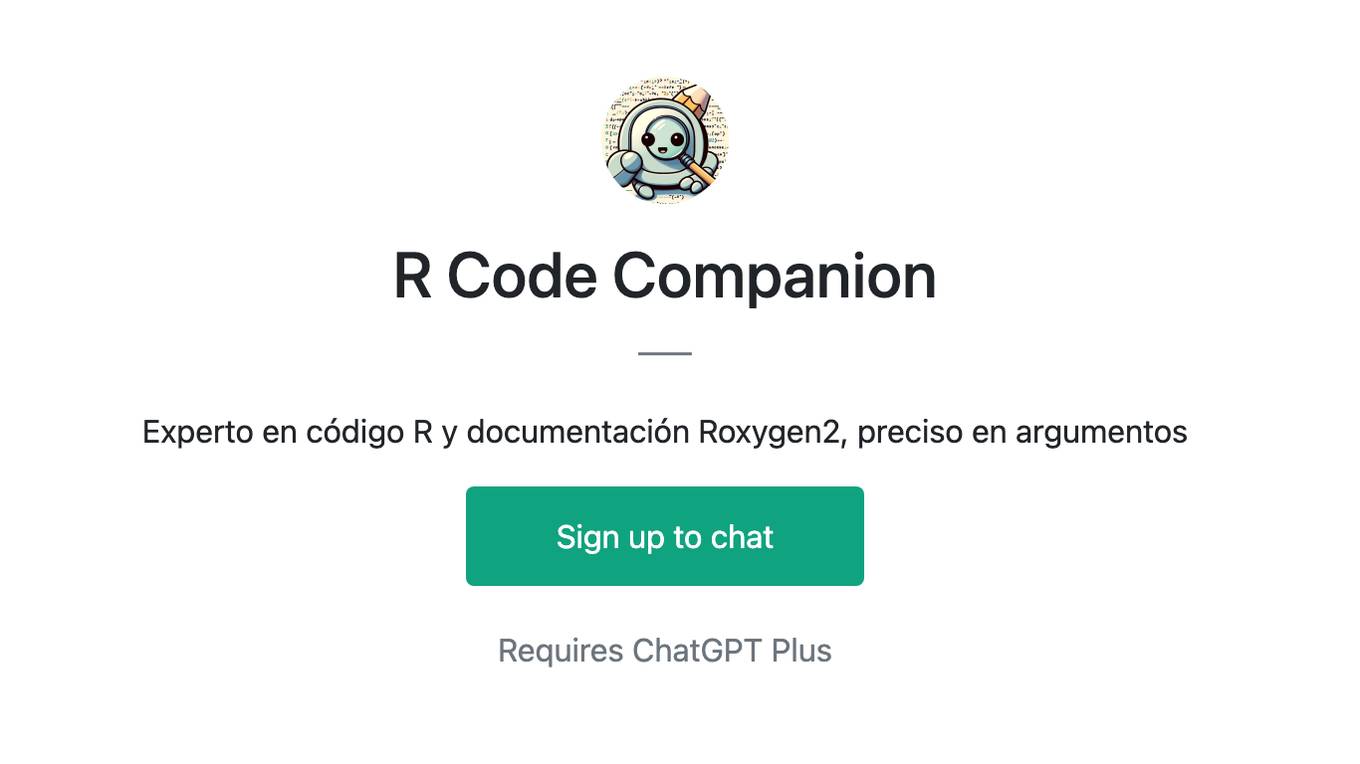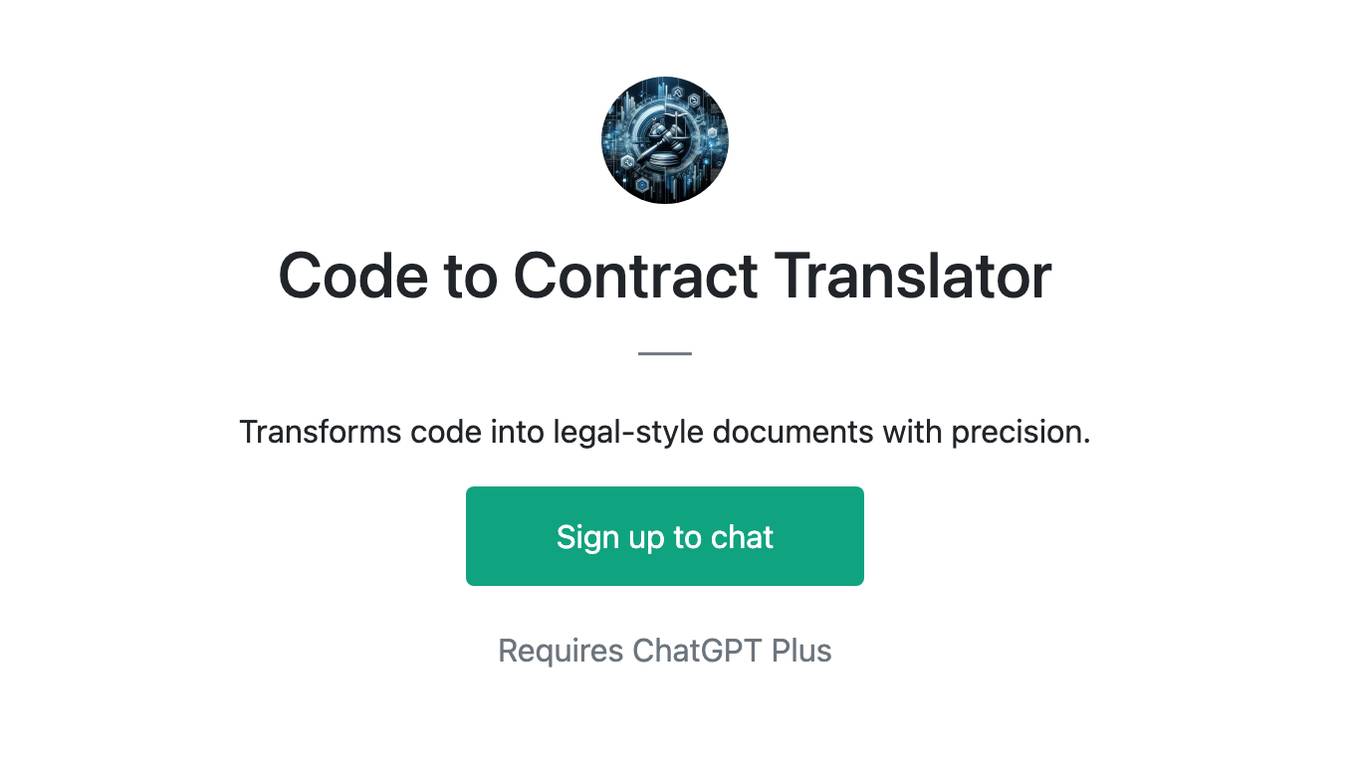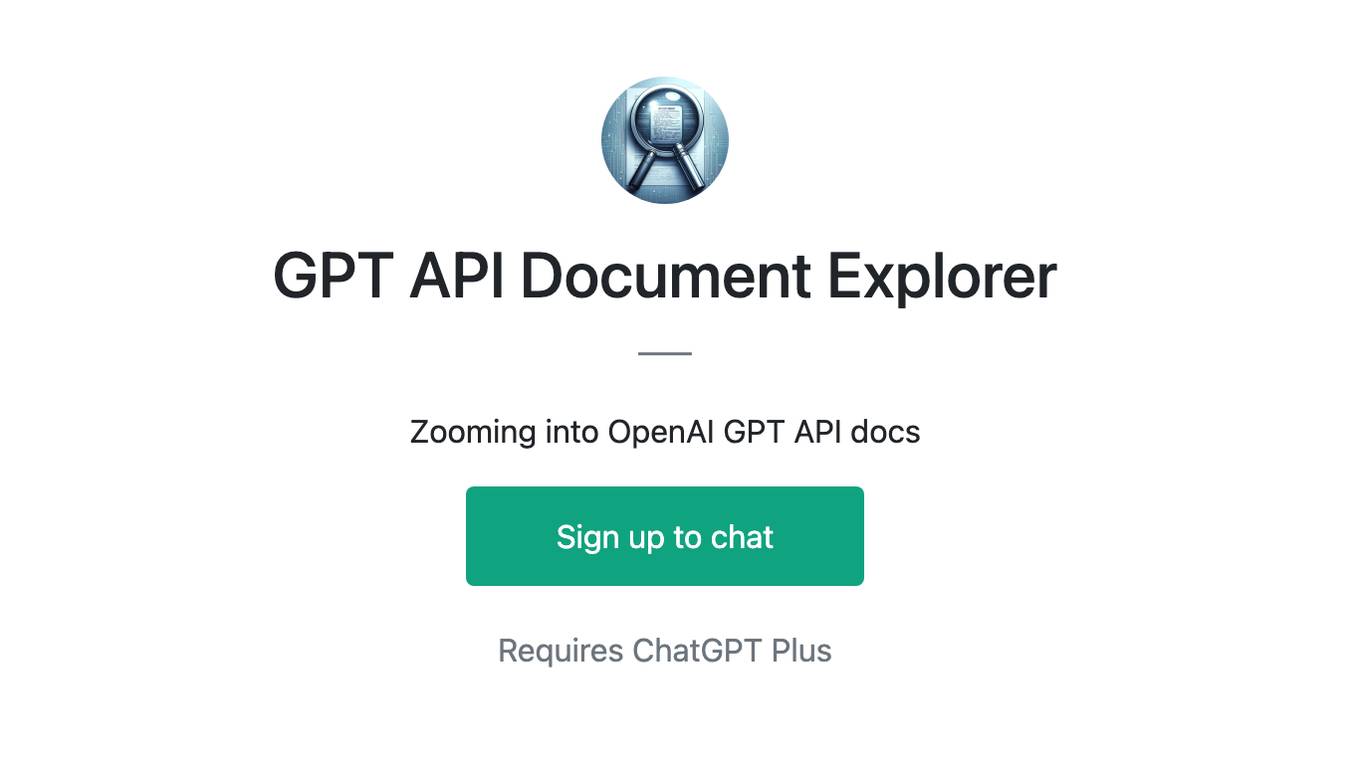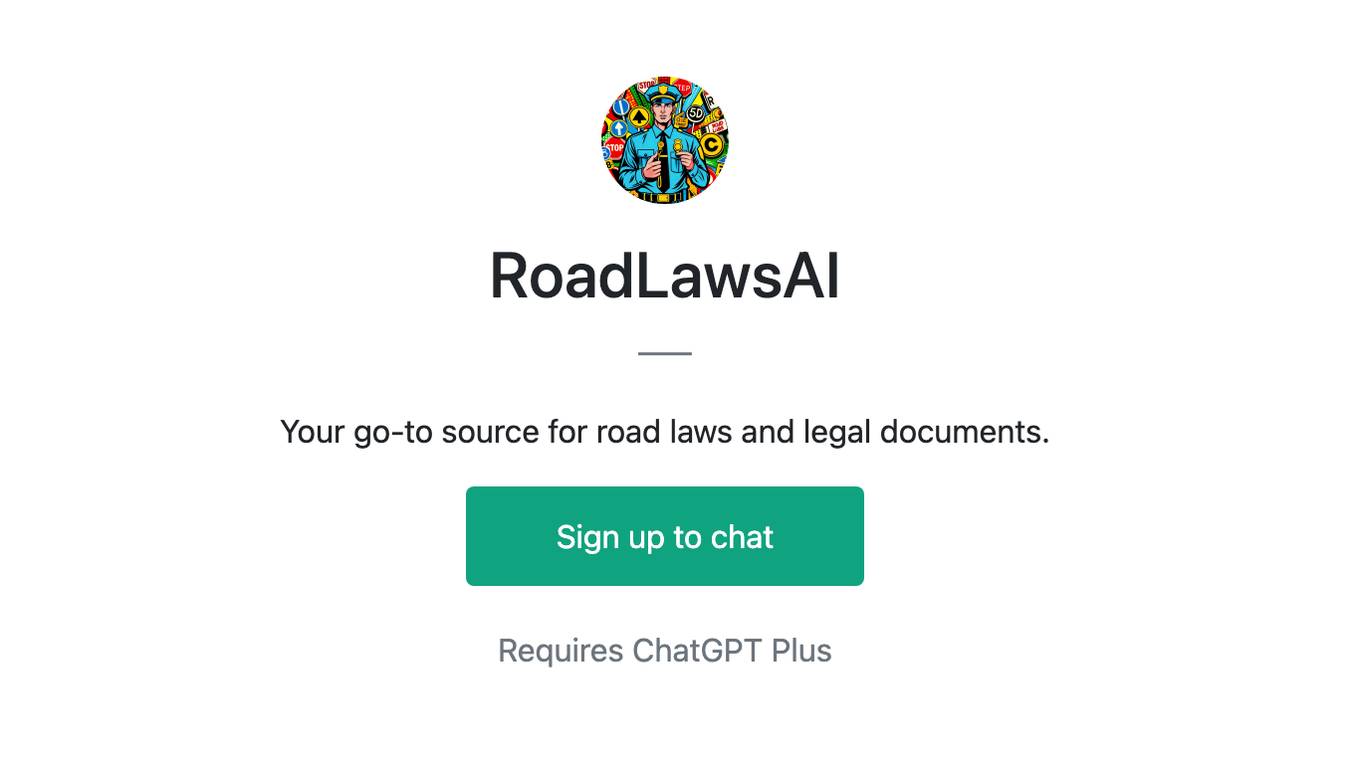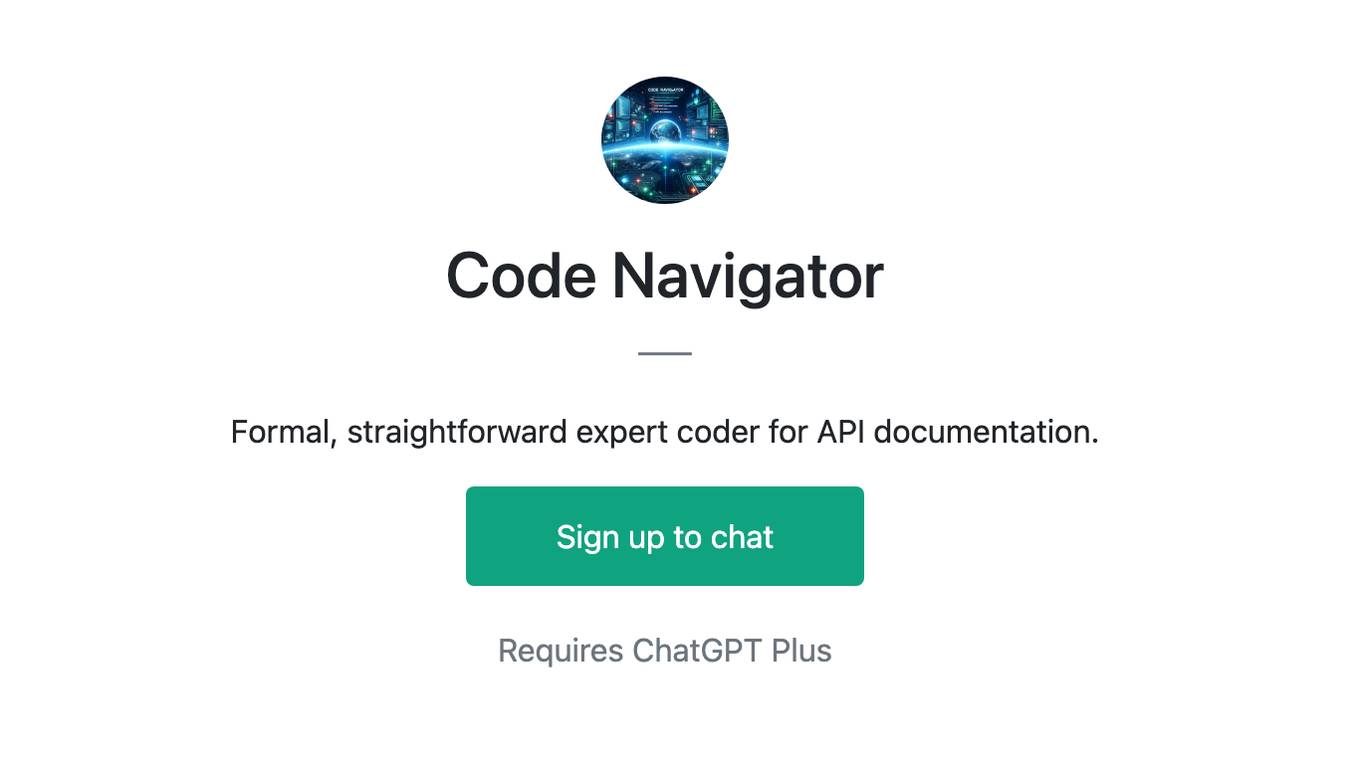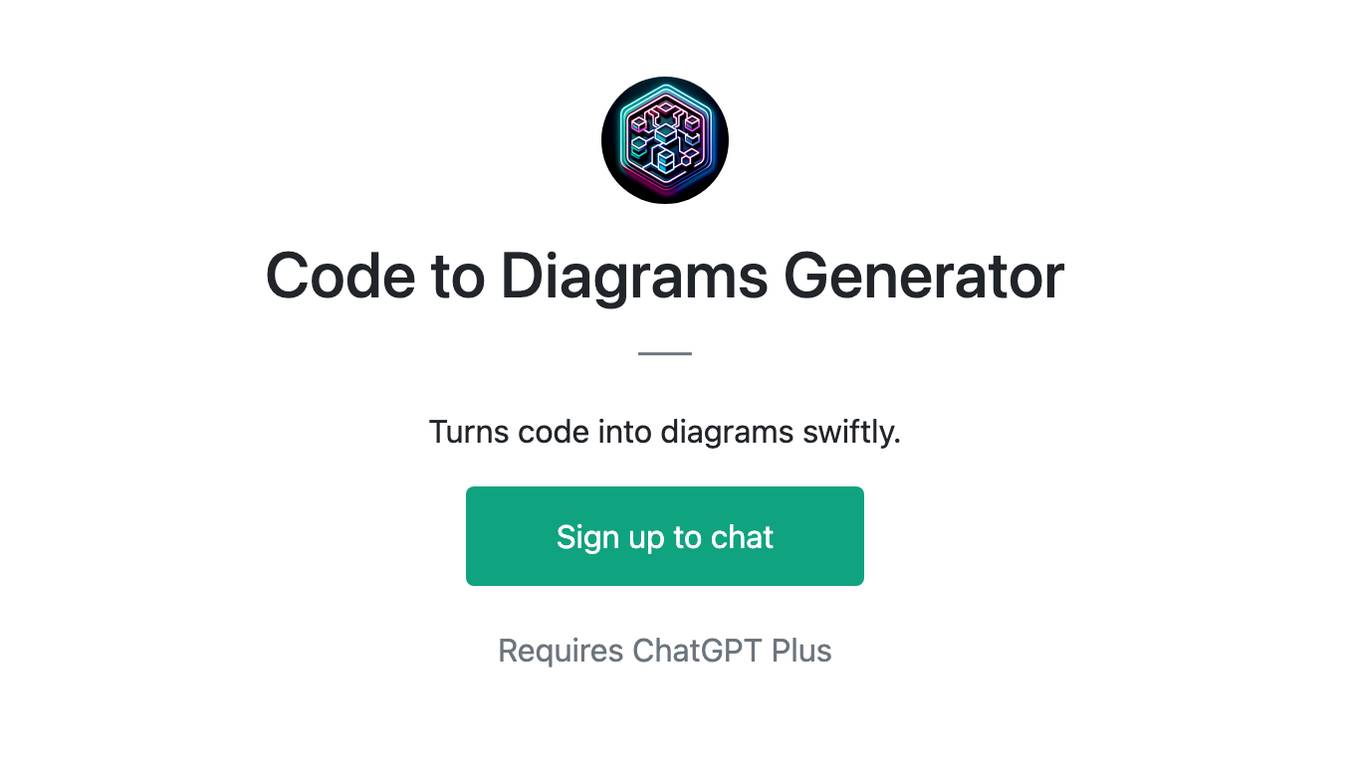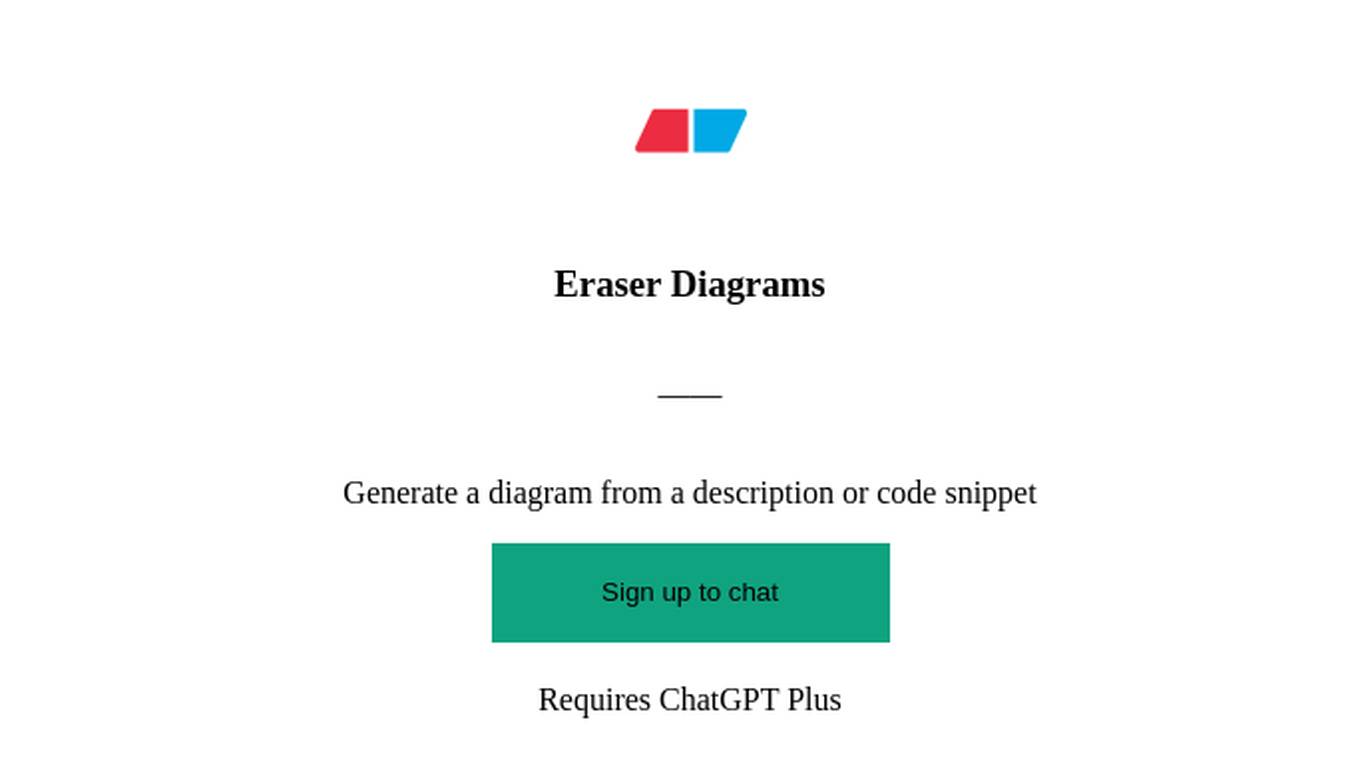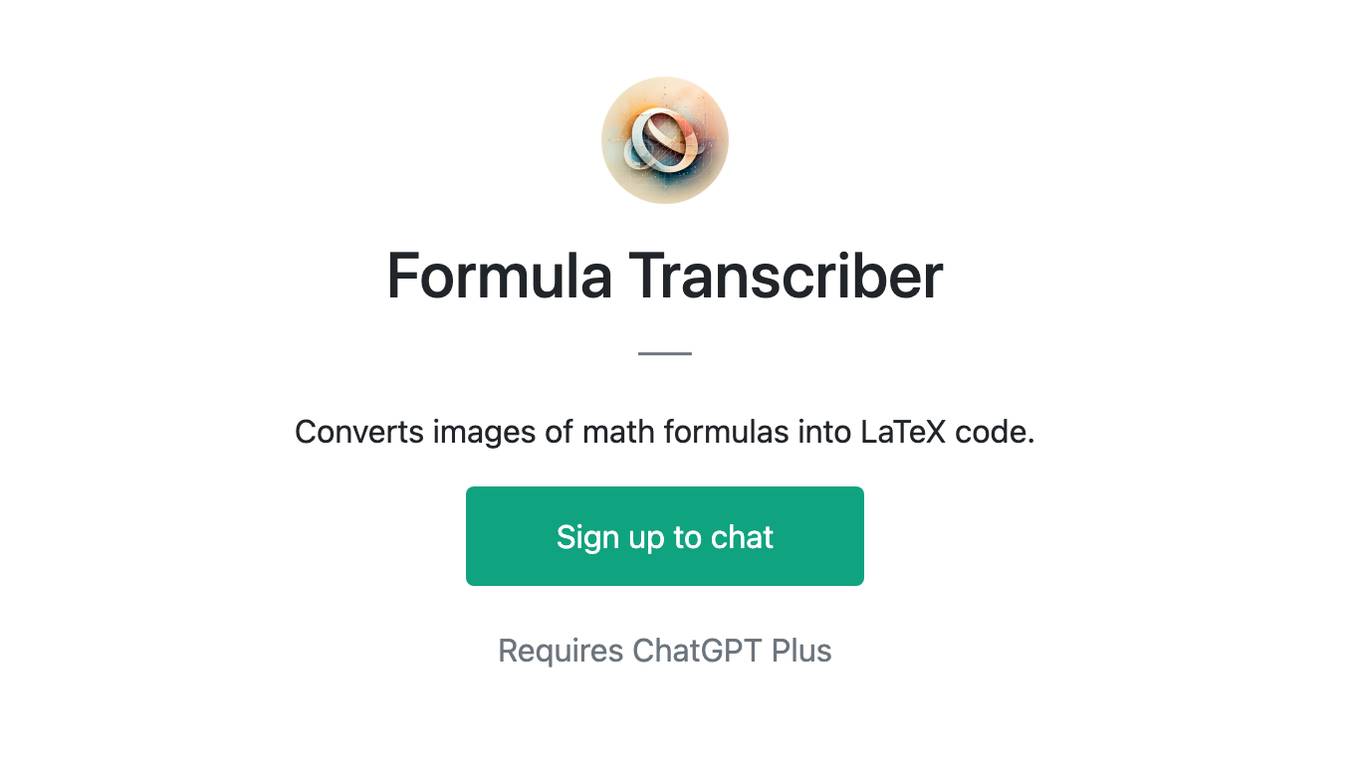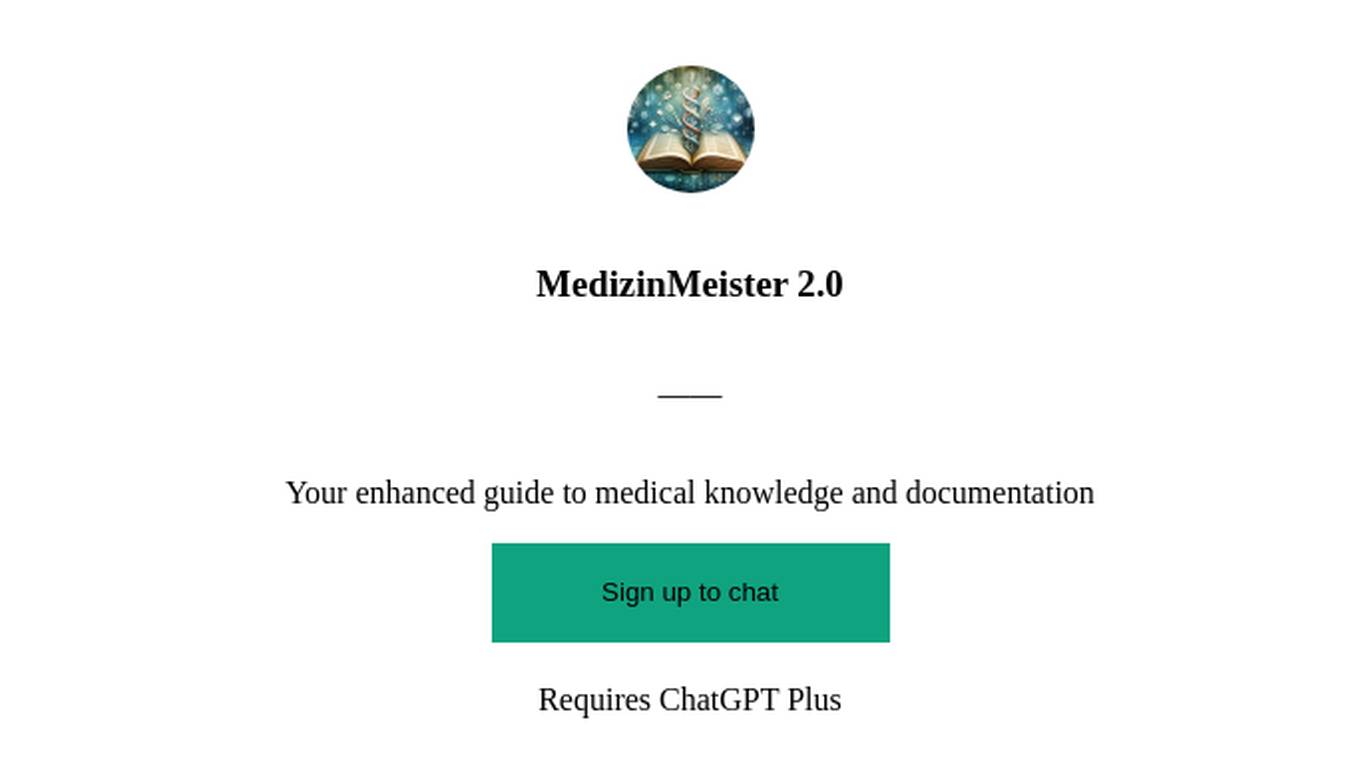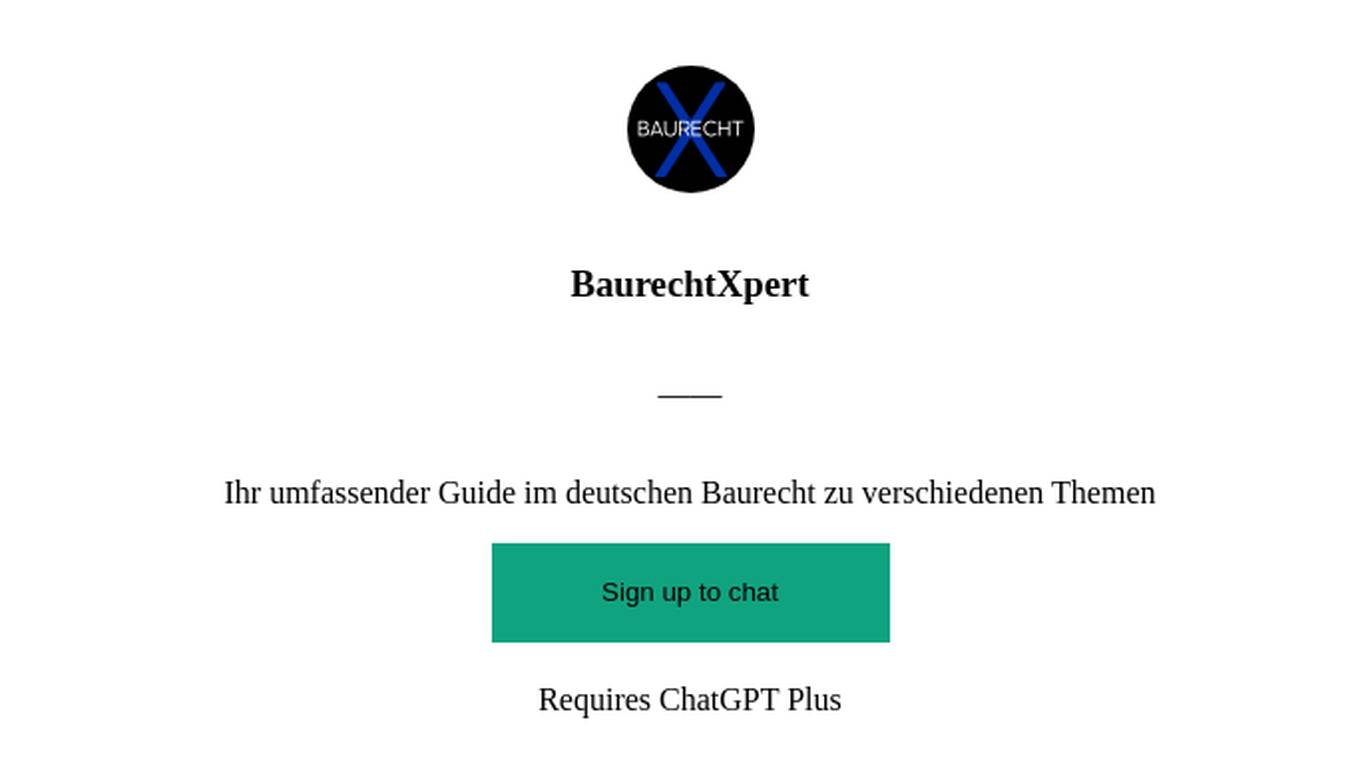Best AI tools for< Document R Code >
20 - AI tool Sites
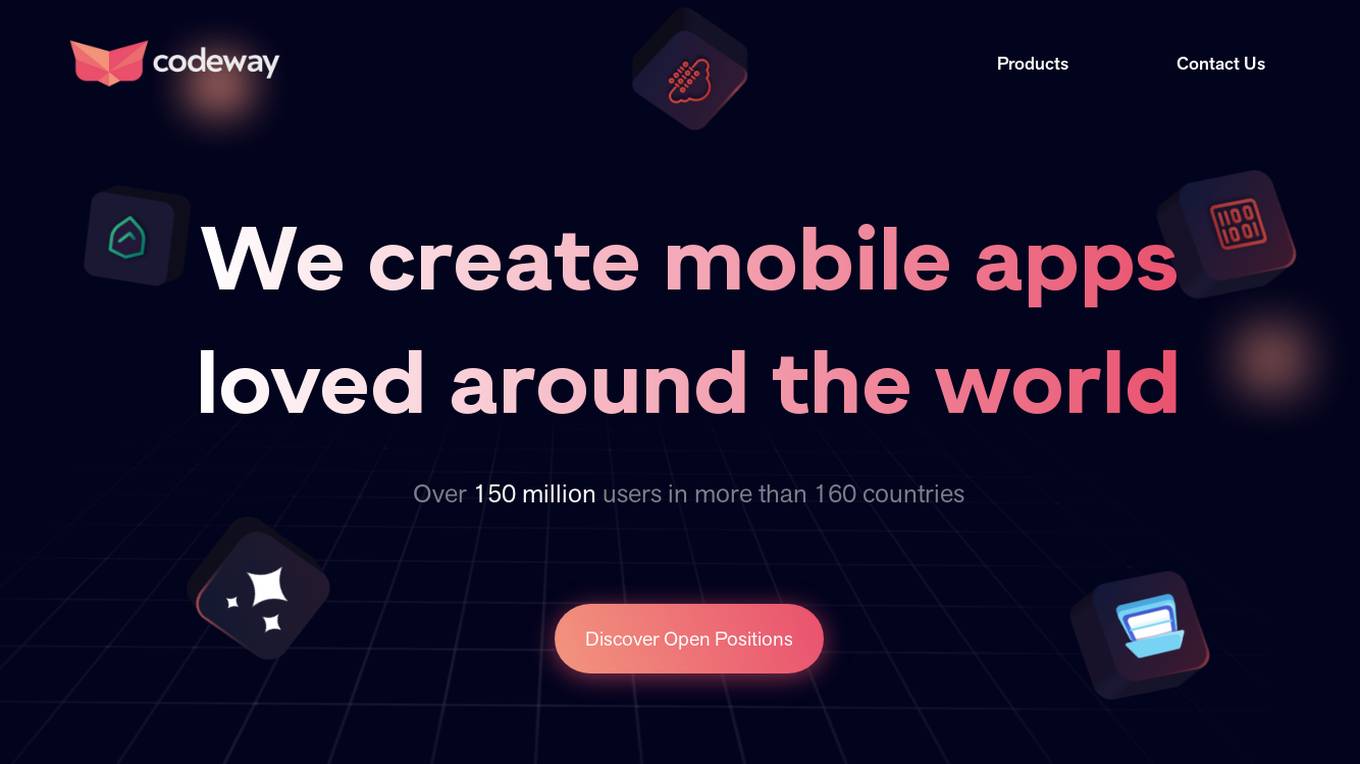
Codeway
Codeway is a leading mobile AI app developer that actively supports earthquake relief efforts in Turkey. With a focus on creating AI-powered apps, Codeway leverages cutting-edge AI technologies to deliver unparalleled user experiences. The company invests in R&D operations to ensure excellence in technology implementation, and is committed to understanding user needs for continuous app evolution. Codeway's products include mobile apps like Cleanup, Scanner+, Ask AI, Facedance, Wonder, Rumble Rivals, and PixelUp. The company excels in marketing, product management, and culture, attracting top talent and fostering a data-driven roadmap to success.
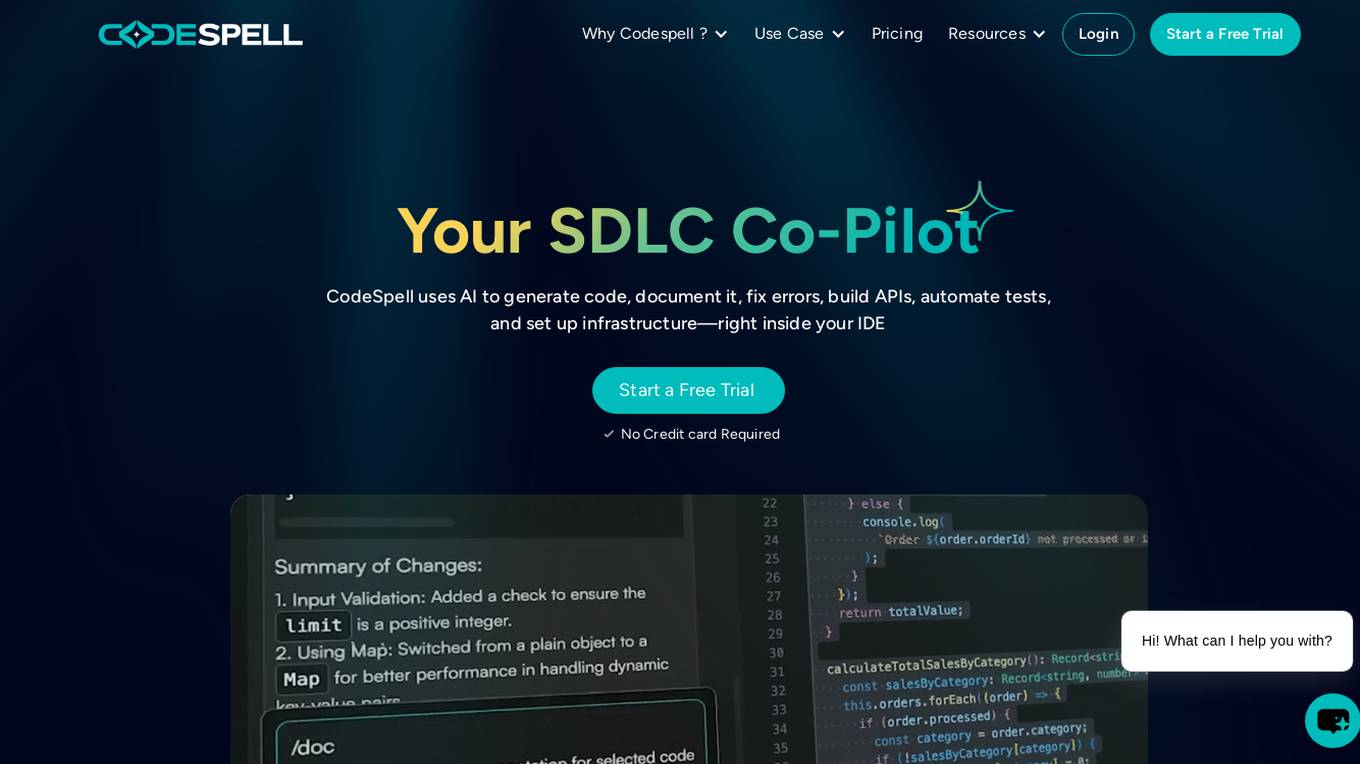
CodeSpell
CodeSpell is an AI-powered code completion tool designed to streamline the software development life cycle (SDLC). It assists developers in generating code, documenting it, fixing errors, building APIs, automating tests, and setting up infrastructure directly within their integrated development environment (IDE). CodeSpell's unique feature, Design Studio, automates project setup by generating scaffolding, APIs, and infrastructure scripts tailored to the user's stack, reducing manual coding effort and accelerating development. The tool is compatible with popular IDEs and supports code generation in any language. CodeSpell aims to transition the software industry from AI-assisted code generation to an AI-driven landscape.
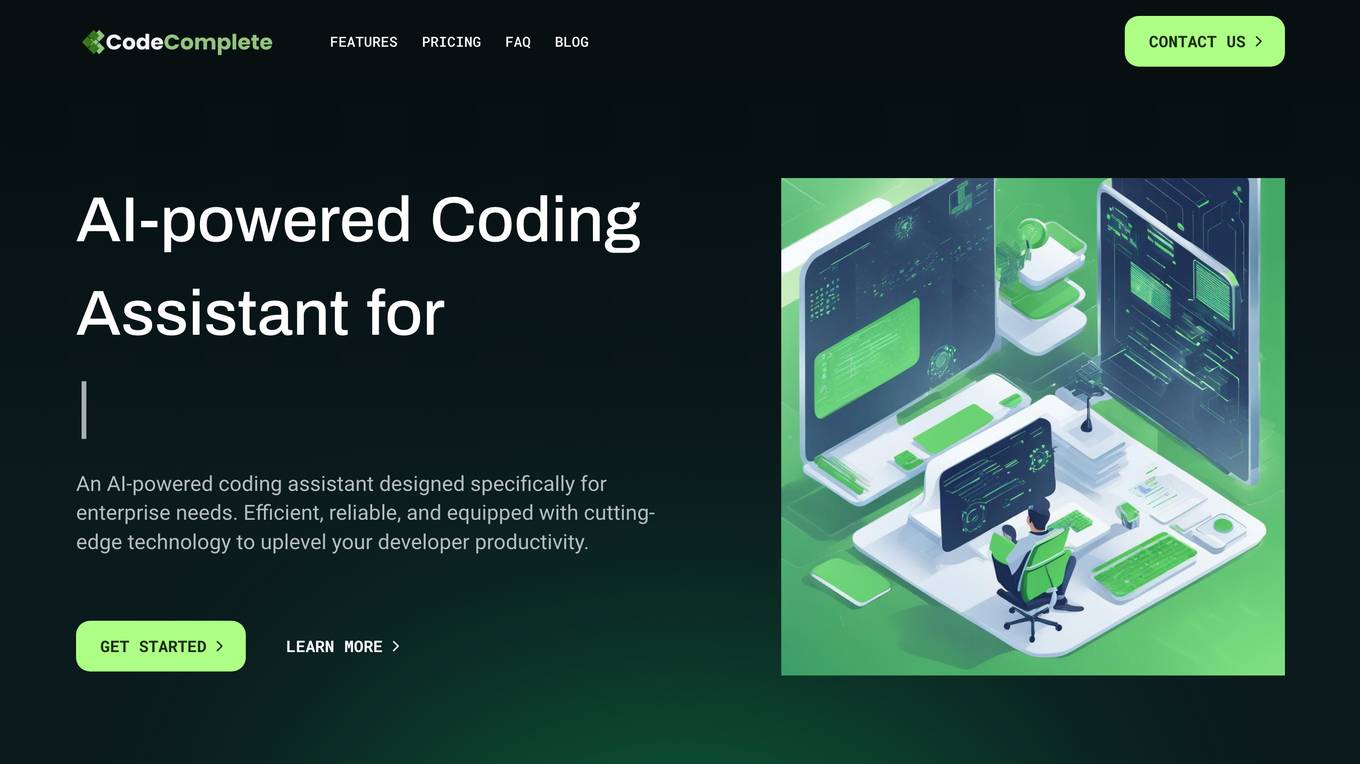
CodeComplete
CodeComplete is an AI-powered coding assistant designed specifically for enterprise needs. It is efficient, reliable, and equipped with cutting-edge technology to improve developer productivity. CodeComplete offers a comprehensive suite of coding tools to improve end-to-end developer workflow, including code generation, code chat, automated unit test generation, automated documentation, and refactoring & migrations.
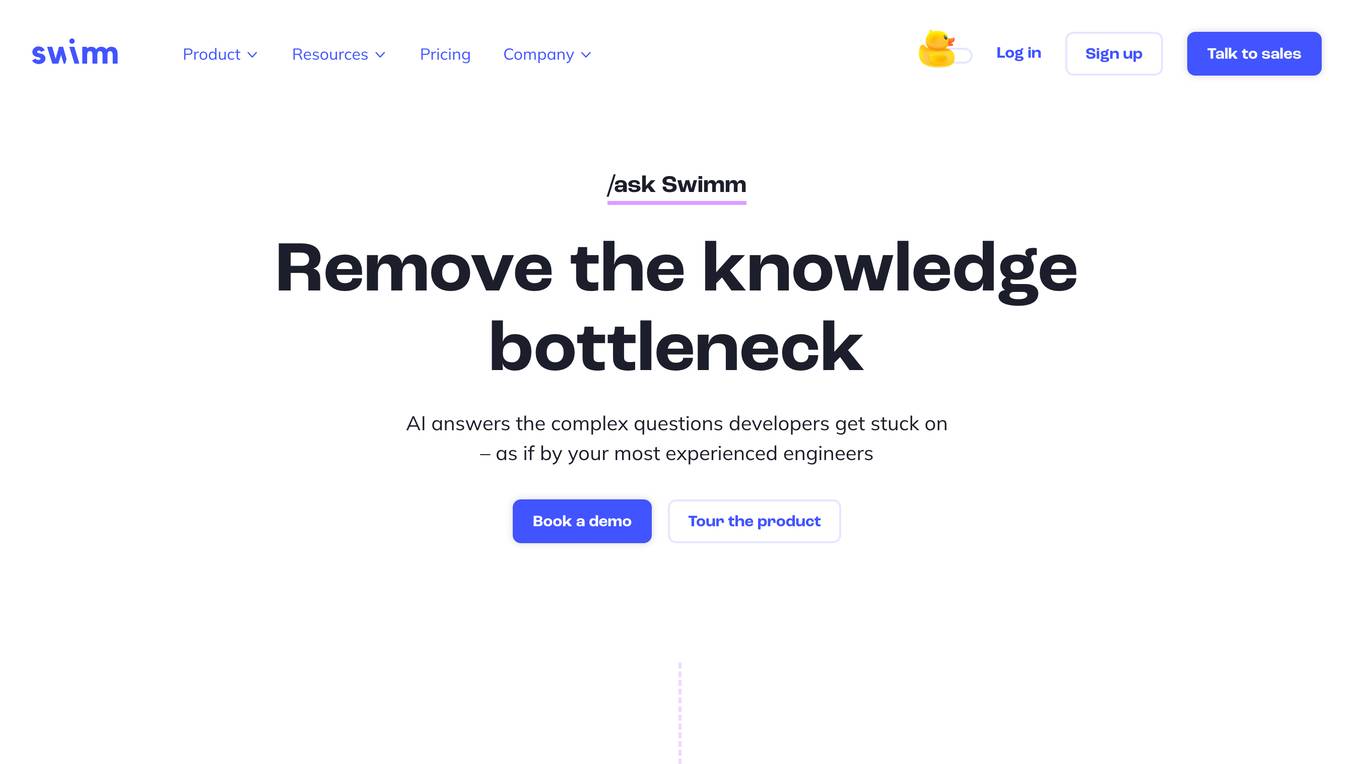
Swimm
Swimm is an Application Understanding Platform that helps users modernize and maintain their legacy code by automatically reverse engineering applications, creating a living inventory of programs and dependencies, uncovering business logic buried in code, and enabling users to plan migrations and align teams around clean architecture. It combines advanced deterministic code analysis with AI to deliver reliable results, ensuring accurate explanations and surfacing all relevant information. Swimm is secure, scalable, and customizable, allowing users to document large codebases quickly and efficiently.
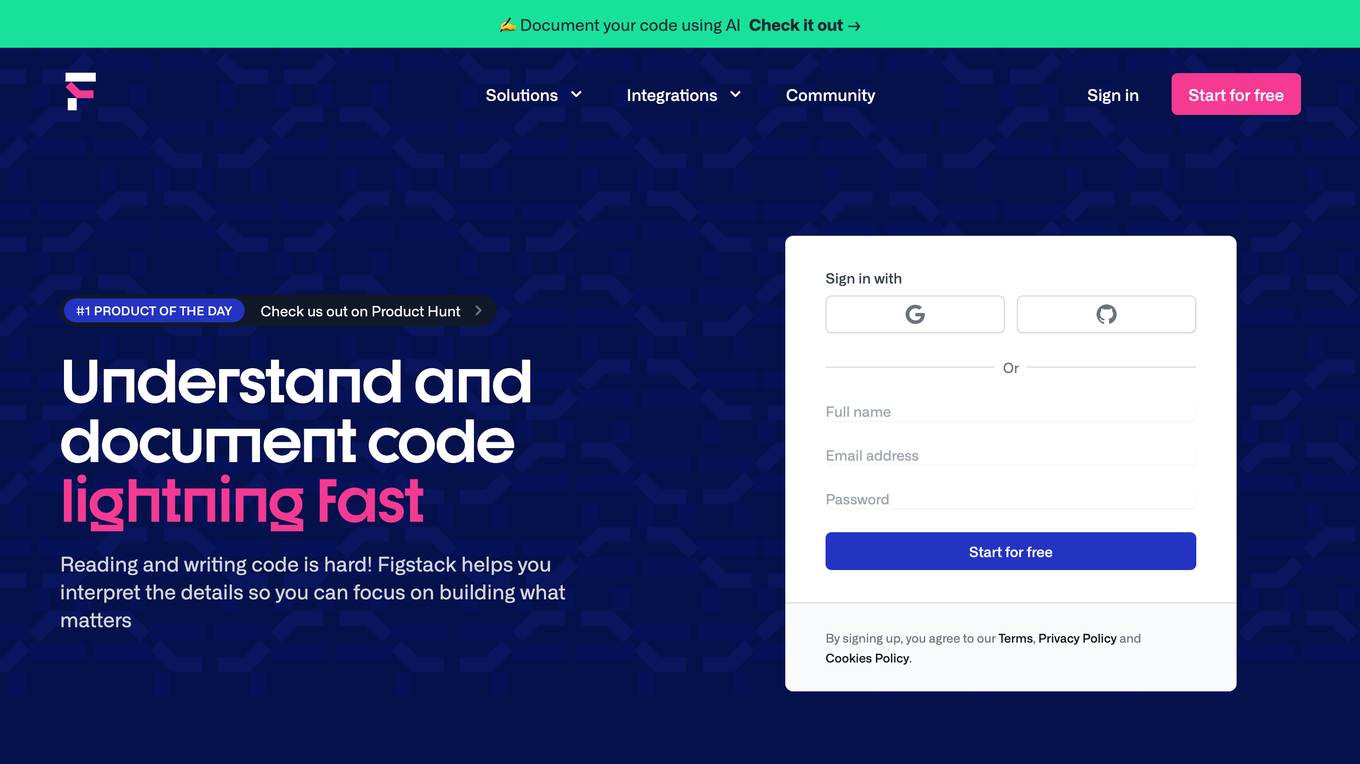
Figstack
Figstack is an intelligent coding companion powered by AI, designed to help developers understand and document code quickly and efficiently. It offers a suite of solutions that supercharge the ability to read and write code across different programming languages. With features like Explain Code, Language Translator, Docstring Writer, and Time Complexity function, Figstack aims to simplify coding tasks and optimize program efficiency.
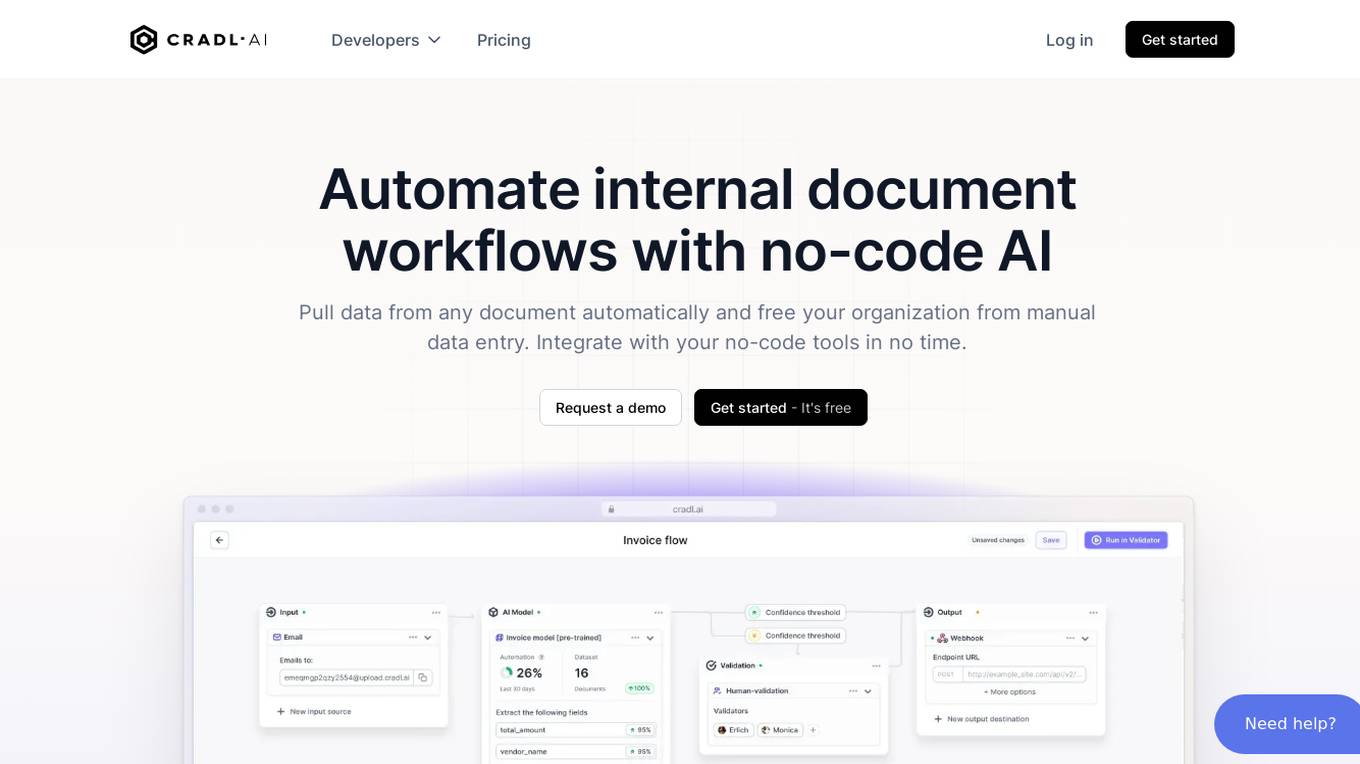
Cradl AI
Cradl AI is an AI-powered tool designed to automate document workflows with no-code AI. It enables users to extract data from any document automatically, integrate with no-code tools, and build custom AI models through an easy-to-use interface. The tool empowers automation teams across industries by extracting data from complex document layouts, regardless of language or structure. Cradl AI offers features such as line item extraction, fine-tuning AI models, human-in-the-loop validation, and seamless integration with automation tools. It is trusted by organizations for business-critical document automation, providing enterprise-level features like encrypted transmission, GDPR compliance, secure data handling, and auto-scaling.
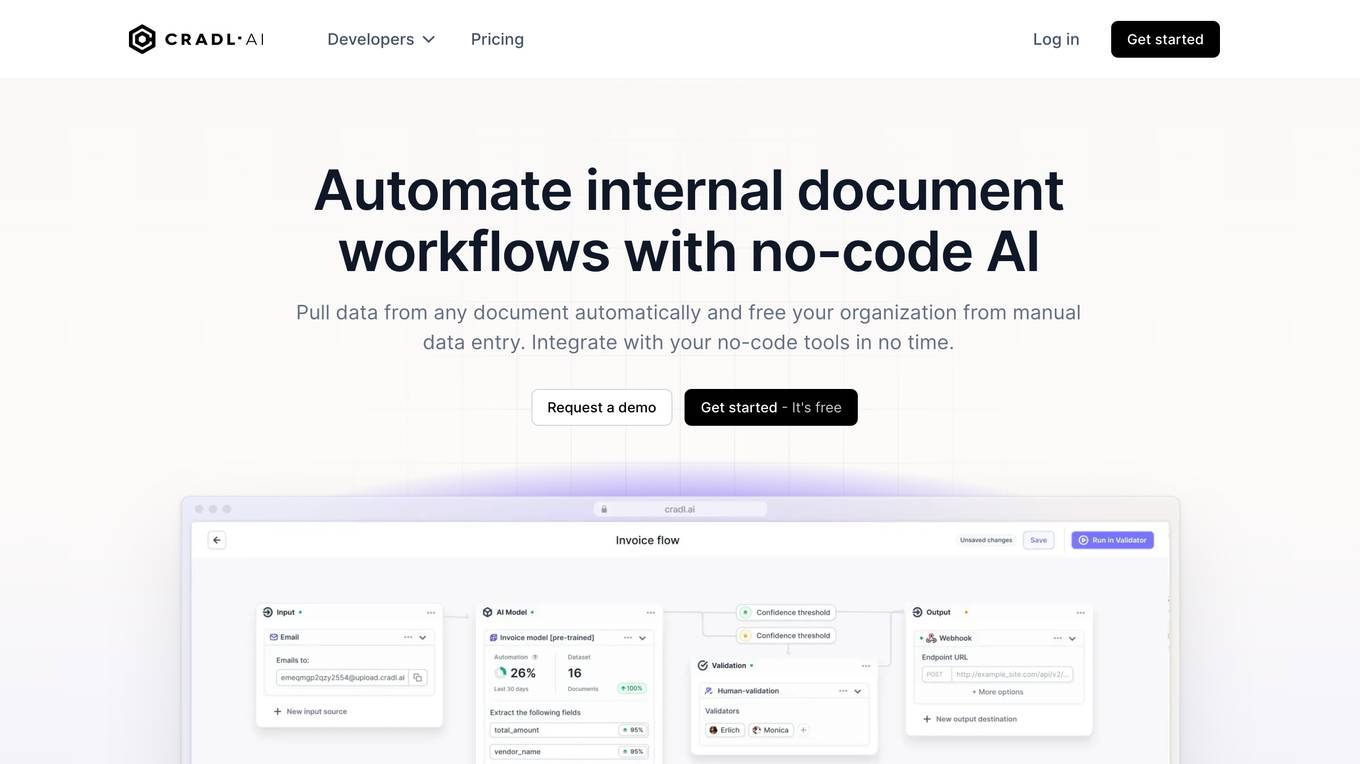
Cradl AI
Cradl AI is a no-code AI-powered document workflow automation tool that helps organizations automate document-related tasks, such as data extraction, processing, and validation. It uses AI to automatically extract data from complex document layouts, regardless of layout or language. Cradl AI also integrates with other no-code tools, making it easy to build and deploy custom AI models.
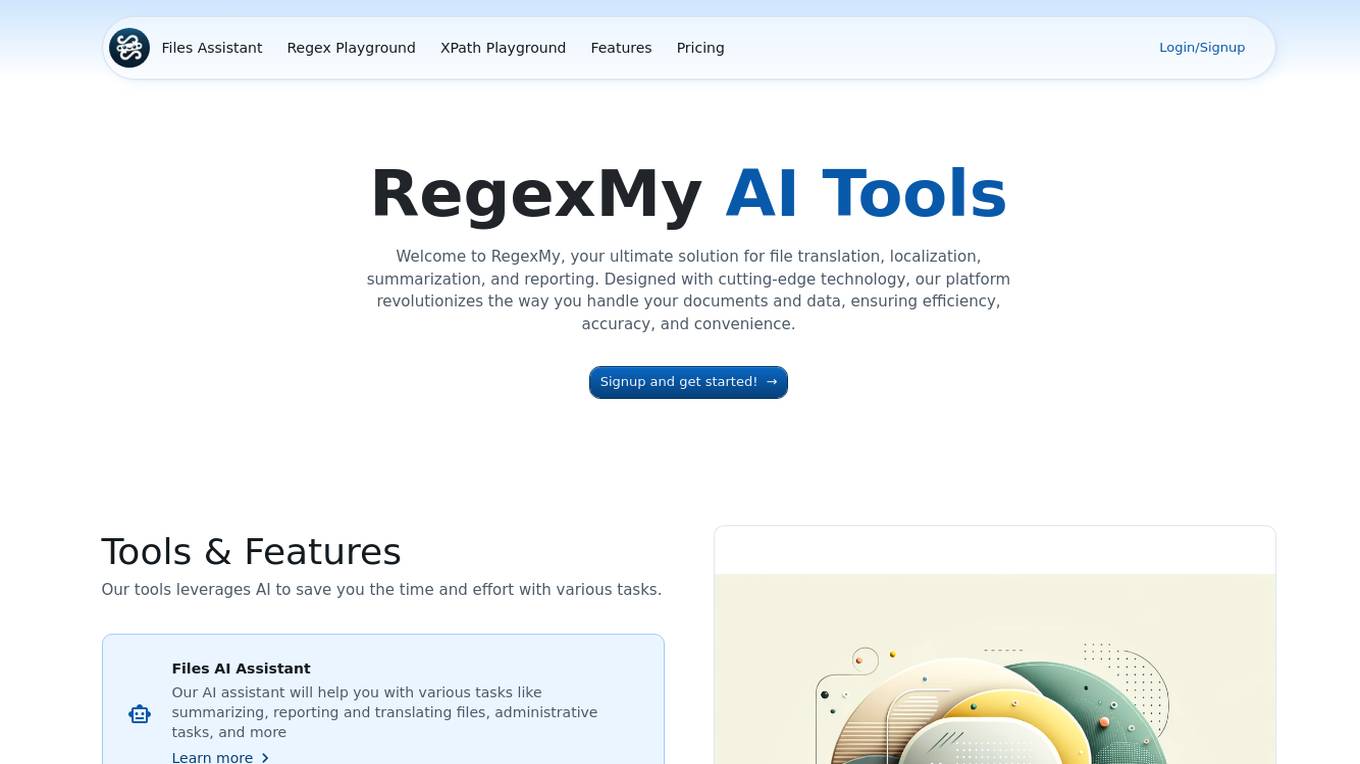
RegexMy
RegexMy is an AI-powered platform that offers solutions for file translation, localization, summarization, and reporting. The platform is designed with cutting-edge technology to enhance document and data handling efficiency, accuracy, and convenience. Users can leverage AI tools to streamline various tasks and benefit from features like Files AI Assistant, Regex Playground, and XPath Playground.
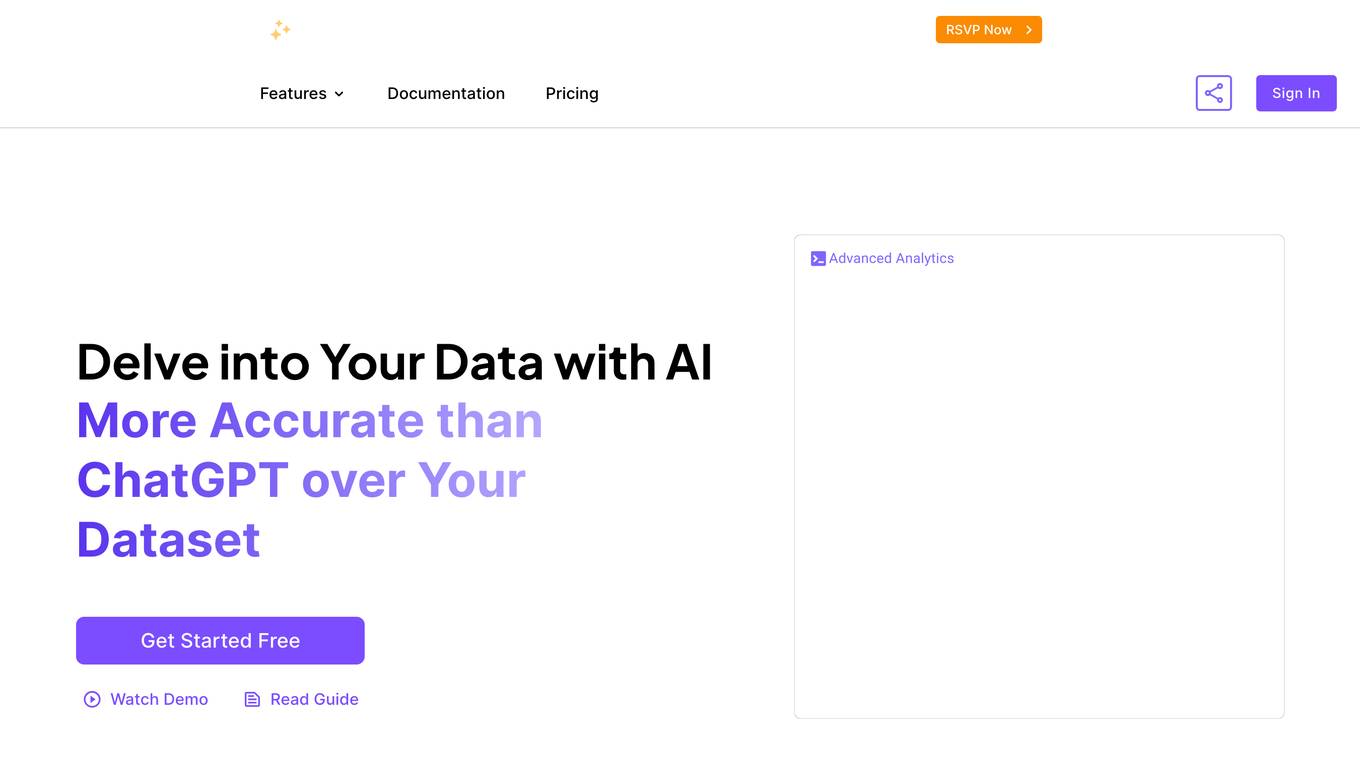
Powerdrill
Powerdrill is a platform that provides swift insights from knowledge and data. It offers a range of features such as discovering datasets, creating BI dashboards, accessing various apps, resources, blogs, documentation, and changelogs. The platform is available in English and fosters a community through its affiliate program. Users can sign up for a basic plan to start utilizing the tools and services offered by Powerdrill.
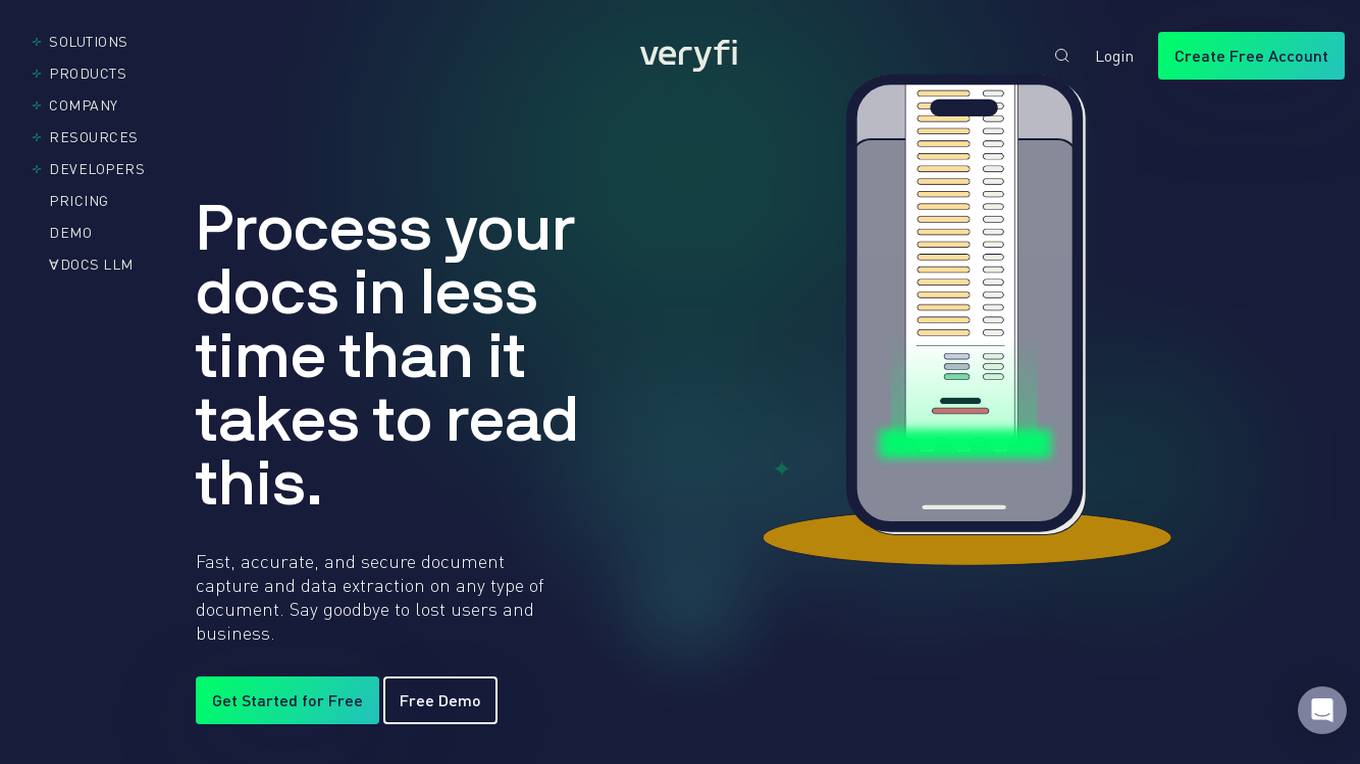
Veryfi
Veryfi is an OCR API tool for invoice and receipt data extraction. It offers fast, accurate, and secure document capture and data extraction on any type of document. Veryfi empowers users to process documents efficiently, automate manual data entry, and implement AI into various business processes. The tool is designed to streamline workflows, enhance accuracy, and unlock new levels of efficiency across industries such as finance, insurance, and more.

DocHipo
DocHipo is an AI-powered document design software that enables users to create stunning infographics, flyers, posters, presentations, brochures, and more in minutes. With thousands of customizable templates, a user-friendly drag-and-drop editor, real-time collaboration, and integration with popular tools, DocHipo is the go-to choice for business users and non-designers. The platform also offers AI-powered features like AI Writer, AI Translate, AI Image Generator, and AI Background Remover to enhance creativity and efficiency in design tasks.
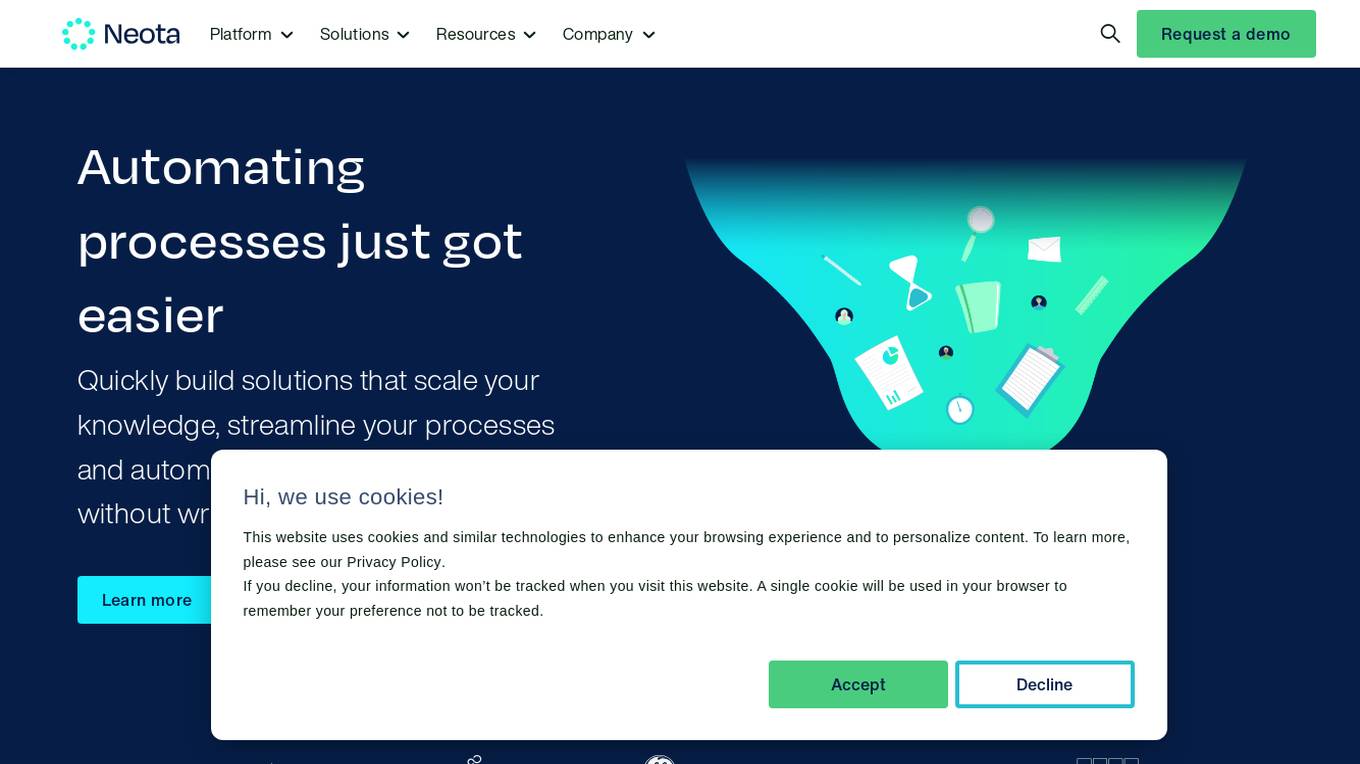
Neota
Neota is a no-code development platform that empowers individuals to build bespoke solutions without writing a single line of code. It offers a wide range of capabilities and features to streamline processes, automate documents, and accelerate time-to-market. Neota integrates seamlessly with existing tools, provides visually stunning user experiences, and ensures security with international certifications. The platform harnesses AI for practical business automation solutions and caters to various roles like Legal Operations, Insurance, and Human Resources. Neota is trusted globally and has a decade of experience in supporting teams to accomplish more with less.
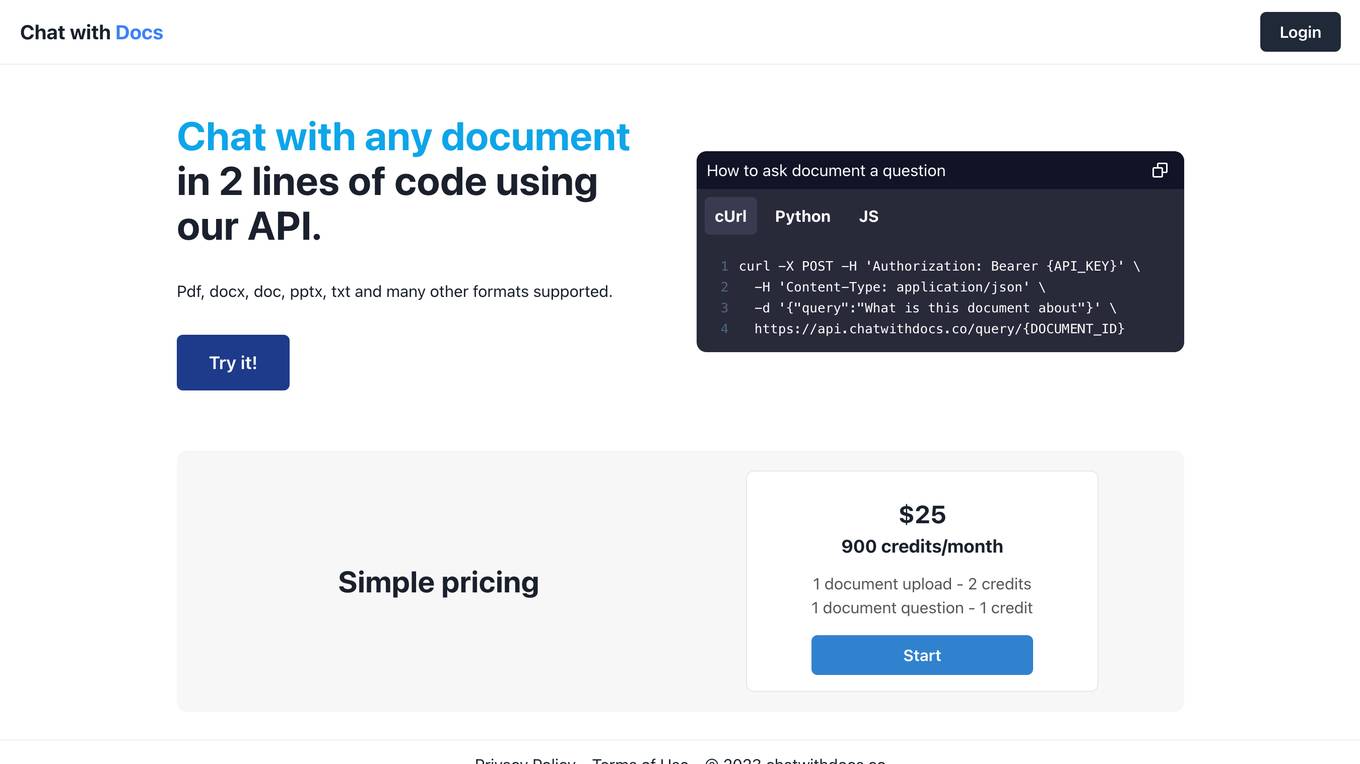
Chat with Docs
Chat with Docs is a platform that allows users to interact with documents using a simple API. Users can chat with any document by integrating just 2 lines of code. The platform supports various document formats such as Pdf, docx, doc, pptx, txt, and more. Users can ask questions about documents using cUrl, Python, or JavaScript. Chat with Docs offers a straightforward pricing model and emphasizes privacy and terms of use.
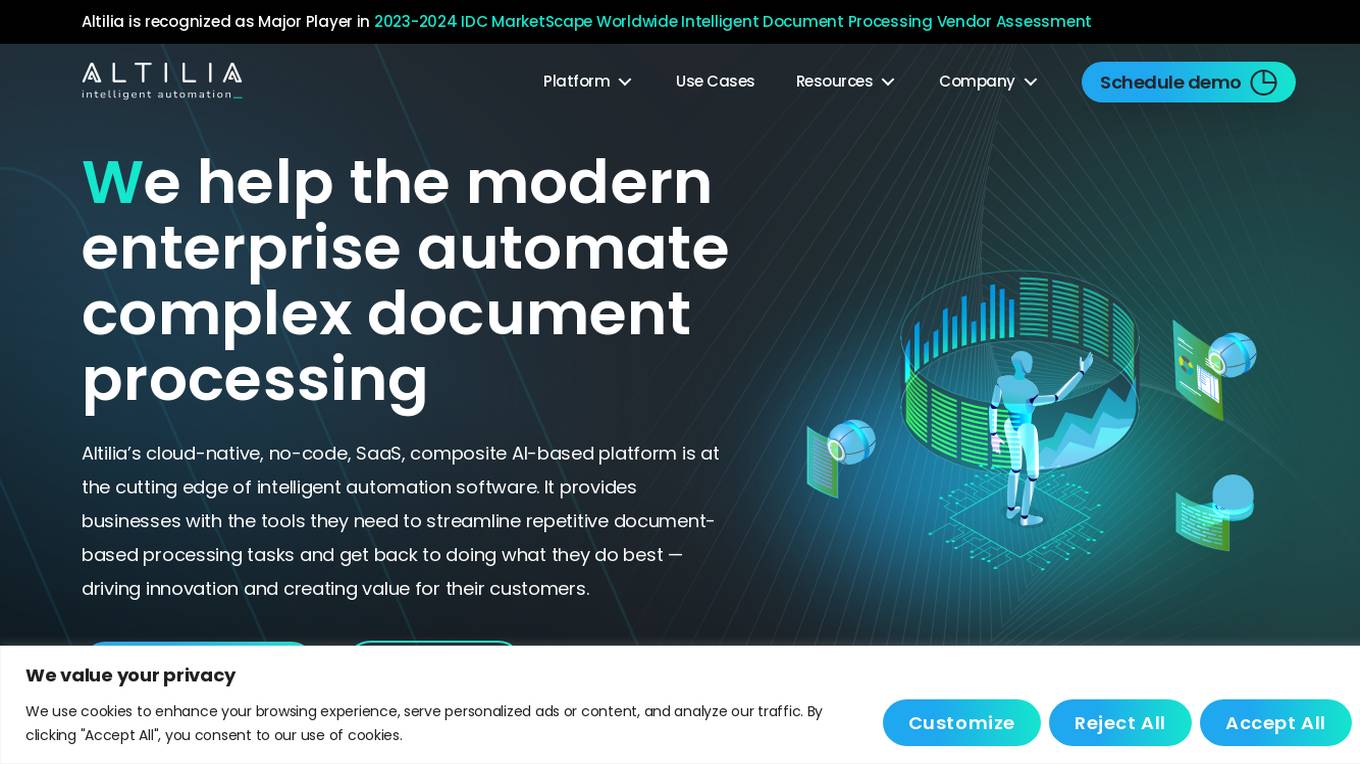
Altilia
Altilia is a Major Player in the Intelligent Document Processing market, offering a cloud-native, no-code, SaaS platform powered by composite AI. The platform enables businesses to automate complex document processing tasks, streamline workflows, and enhance operational performance. Altilia's solution leverages GPT and Large Language Models to extract structured data from unstructured documents, providing significant efficiency gains and cost savings for organizations of all sizes and industries.
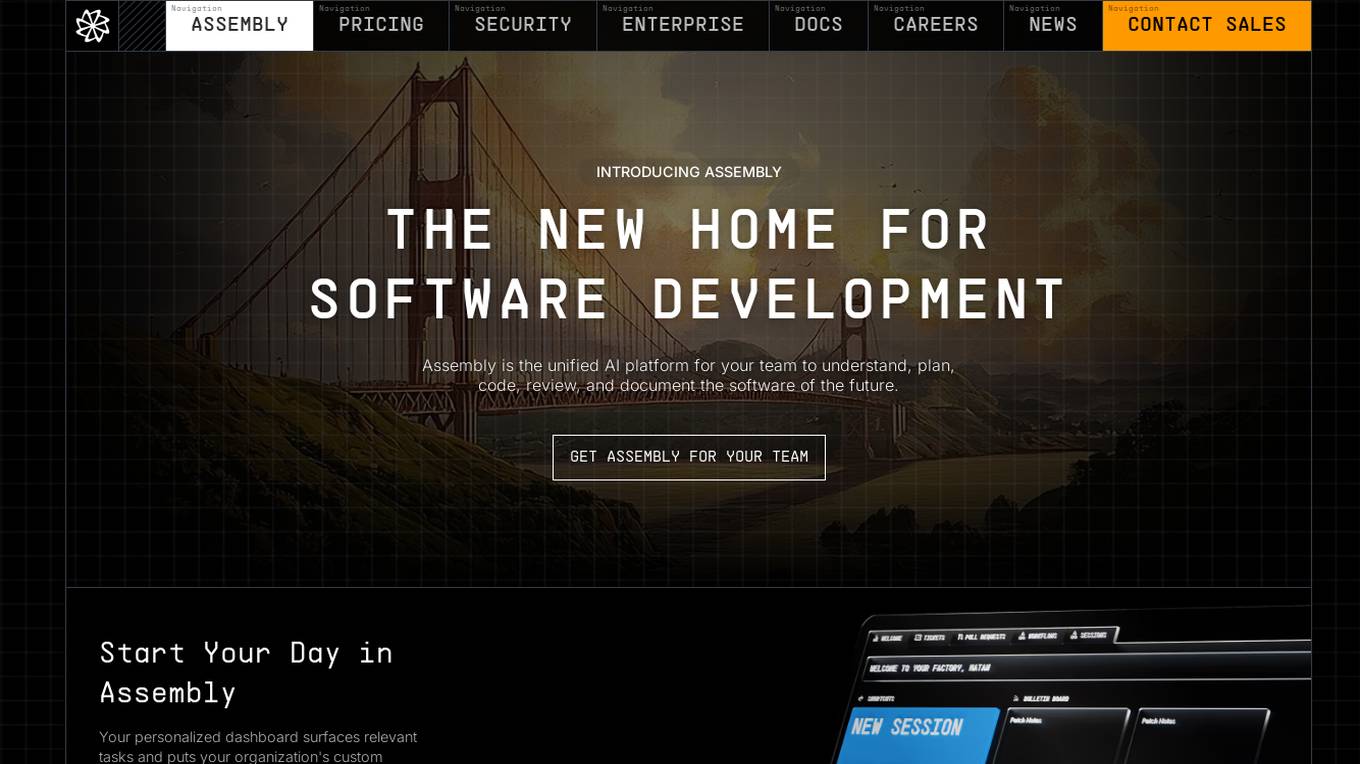
Factory AI
Factory AI is a unified AI platform designed to assist software development teams in understanding, planning, coding, reviewing, and documenting software projects. It enables collaboration between humans and AI, streamlining workflows and enhancing productivity. The platform offers features such as codebase Q&A, code review with AI assistance, development work tools, migration planning, document creation, and internal tool building. Factory AI is built for enterprise use, providing a unified context, enterprise-grade security, team collaboration, standardized workflows, and native workflows for building with premier dev tools.
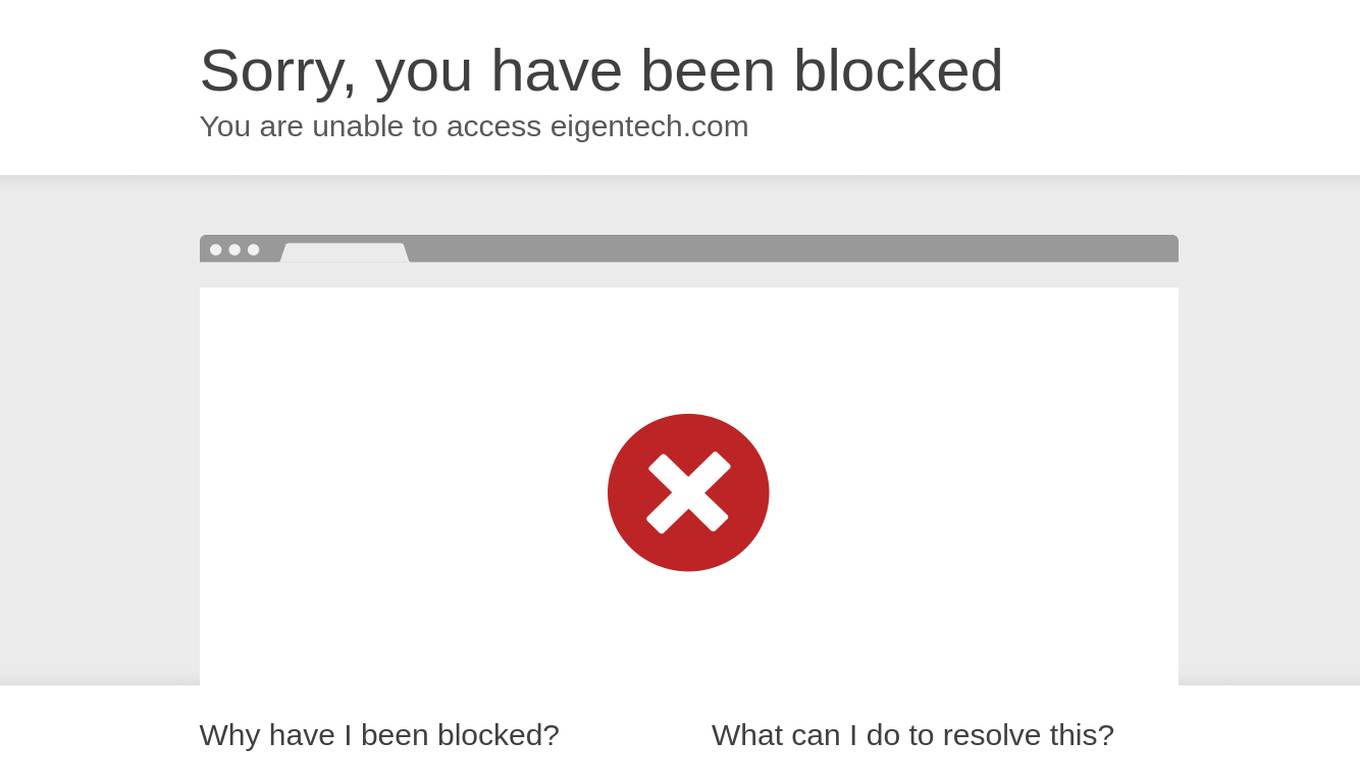
Eigen Technologies
Eigen Technologies is an AI-powered data extraction platform designed for business users to automate the extraction of data from various documents. The platform offers solutions for intelligent document processing and automation, enabling users to streamline business processes, make informed decisions, and achieve significant efficiency gains. Eigen's platform is purpose-built to deliver real ROI by reducing manual processes, improving data accuracy, and accelerating decision-making across industries such as corporates, banks, financial services, insurance, law, and manufacturing. With features like generative insights, table extraction, pre-processing hub, and model governance, Eigen empowers users to automate data extraction workflows efficiently. The platform is known for its unmatched accuracy, speed, and capability, providing customers with a flexible and scalable solution that integrates seamlessly with existing systems.
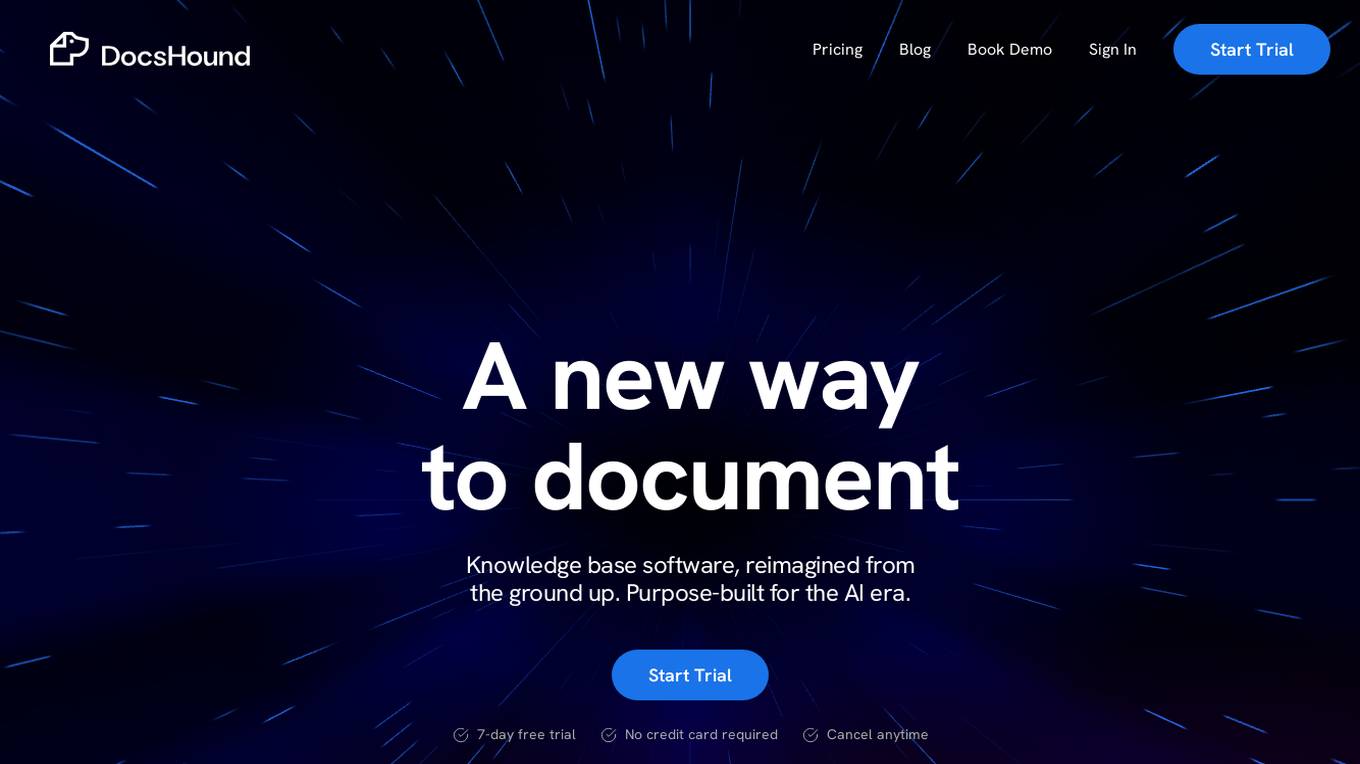
DocsHound
DocsHound is an AI automated documentation platform that revolutionizes knowledge base software by offering a purpose-built solution for the AI era. It simplifies the process of creating manuals by automating the output based on user input. With a focus on product managers, founders, engineers, writers, and customer success professionals, DocsHound provides a modular editing interface with a suite of AI features, efficient publishing workflow, on-brand styling options, and an adaptive AI engine calibrated to user interactions.
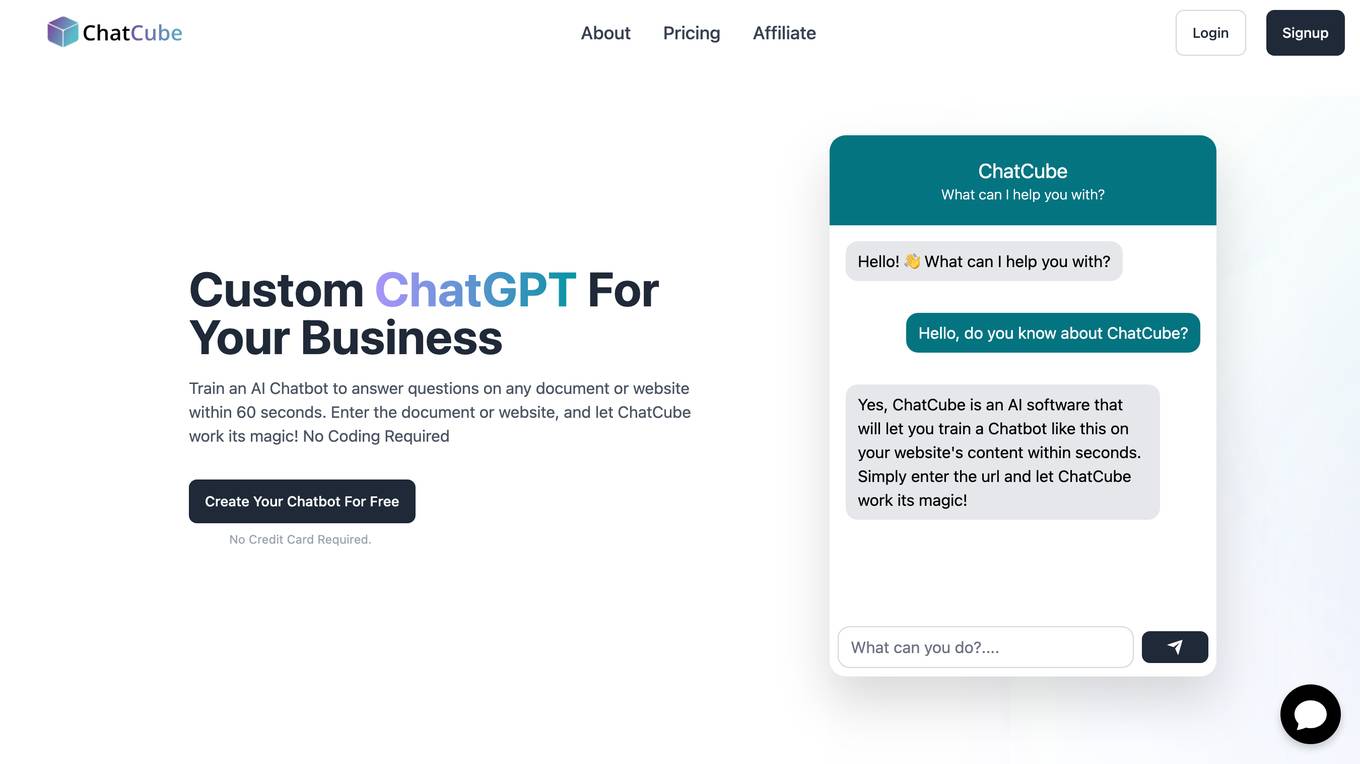
ChatCube
ChatCube is an AI-powered chatbot maker that allows users to create chatbots for their websites without coding. It uses advanced AI technology to train chatbots on any document or website within 60 seconds. ChatCube offers a range of features, including a user-friendly visual editor, lightning-fast integration, fine-tuning on specific data sources, data encryption and security, and customizable chatbots. By leveraging the power of AI, ChatCube helps businesses improve customer support efficiency and reduce support ticket reductions by up to 28%.
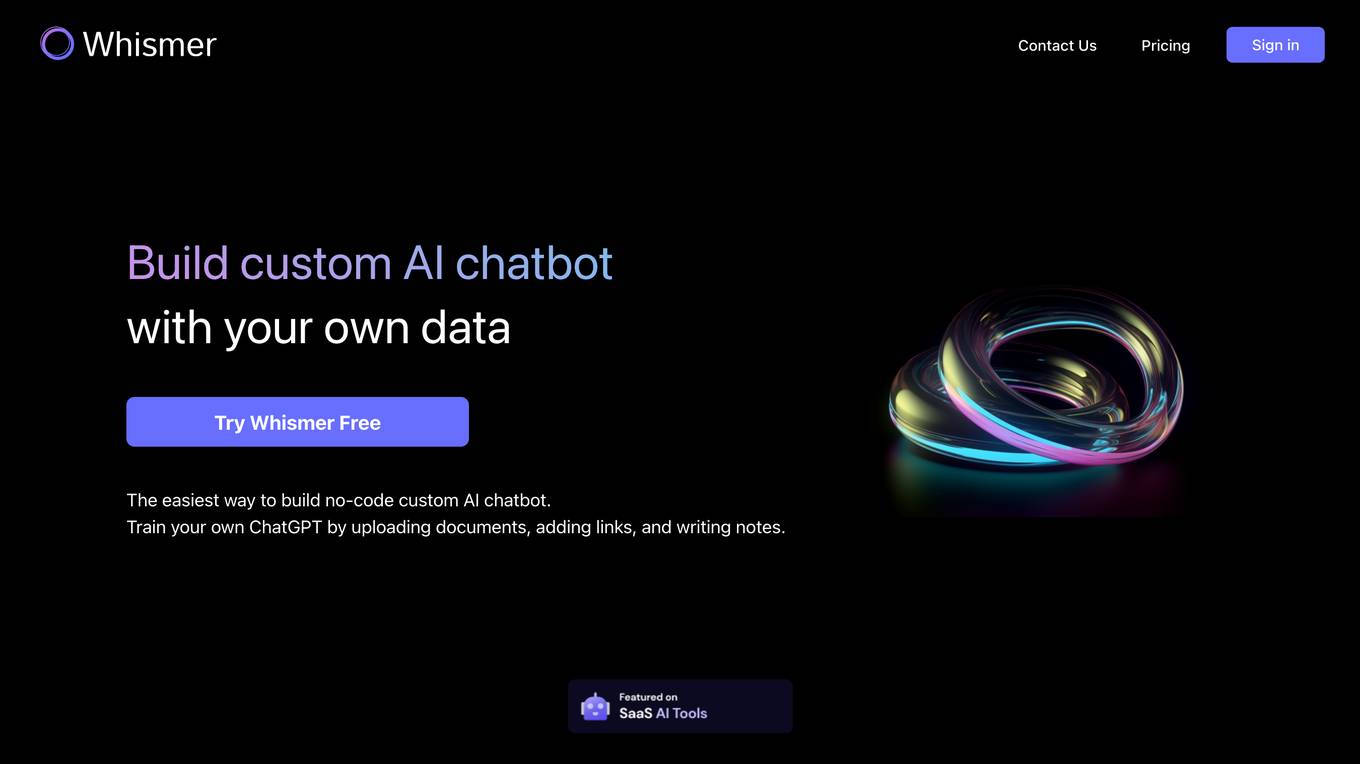
Whismer
Whismer is an AI application that allows users to build custom AI chatbots using their own data. The platform enables users to train their own ChatGPT by uploading documents, adding links, and writing notes. With Whismer, users can customize resources to help the AI system better adapt to specific fields or tasks, improving accuracy and efficiency. The AI proactively learns from user resources to solve various problems. Users can create a professional AI knowledge base in minutes, allowing the AI to learn and provide accurate answers. Whismer also enables users to share their customized AI projects with others, making AI accessible to more people.
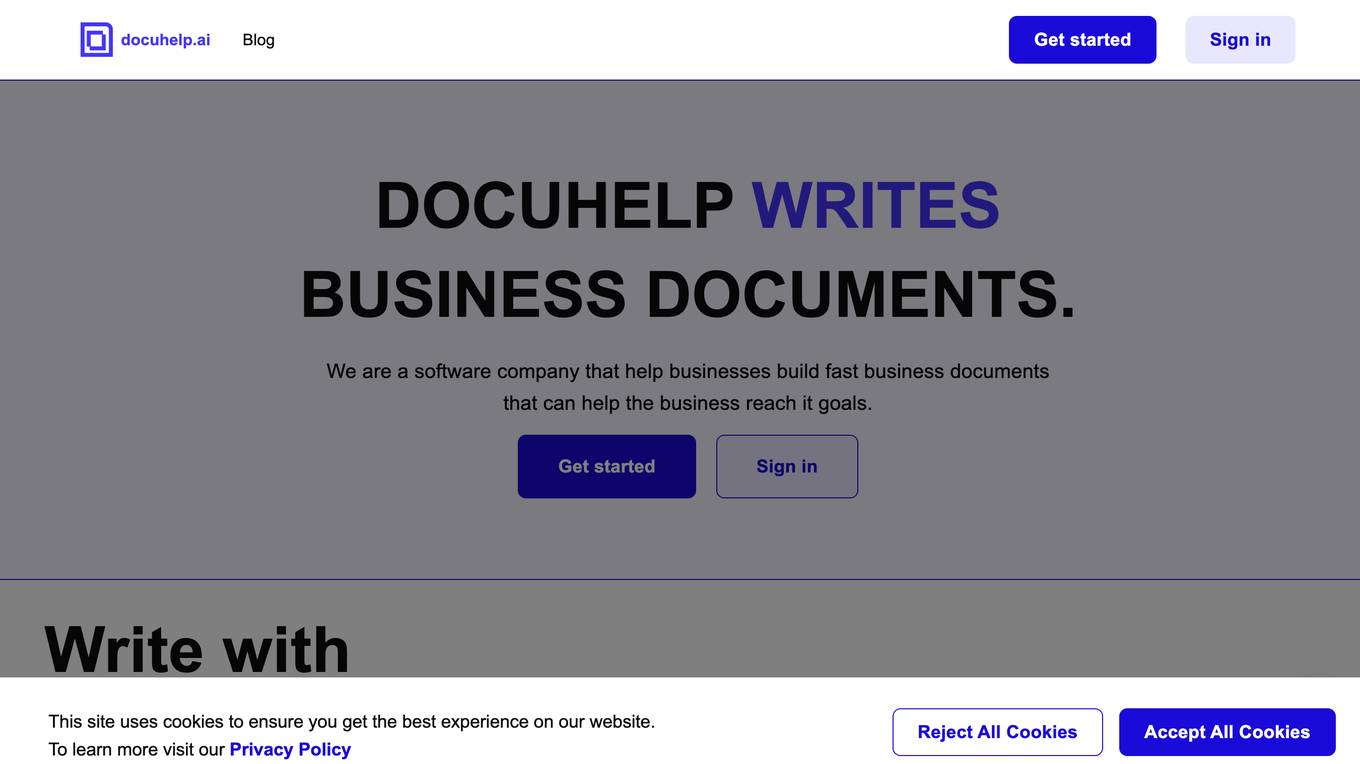
DocuHelp
DocuHelp is an AI-powered platform that enables businesses to effortlessly create professional-grade documents, reports, proposals, and sales pitches in a matter of minutes. It facilitates real-time collaboration among team members, eliminating the need for email chains and ensuring accuracy and efficiency. With industry-focused backend prompts, access to backend systems, and the ability to train models on company-specific data, DocuHelp offers a tailored solution for businesses seeking to enhance their document creation process.
0 - Open Source AI Tools
20 - OpenAI Gpts
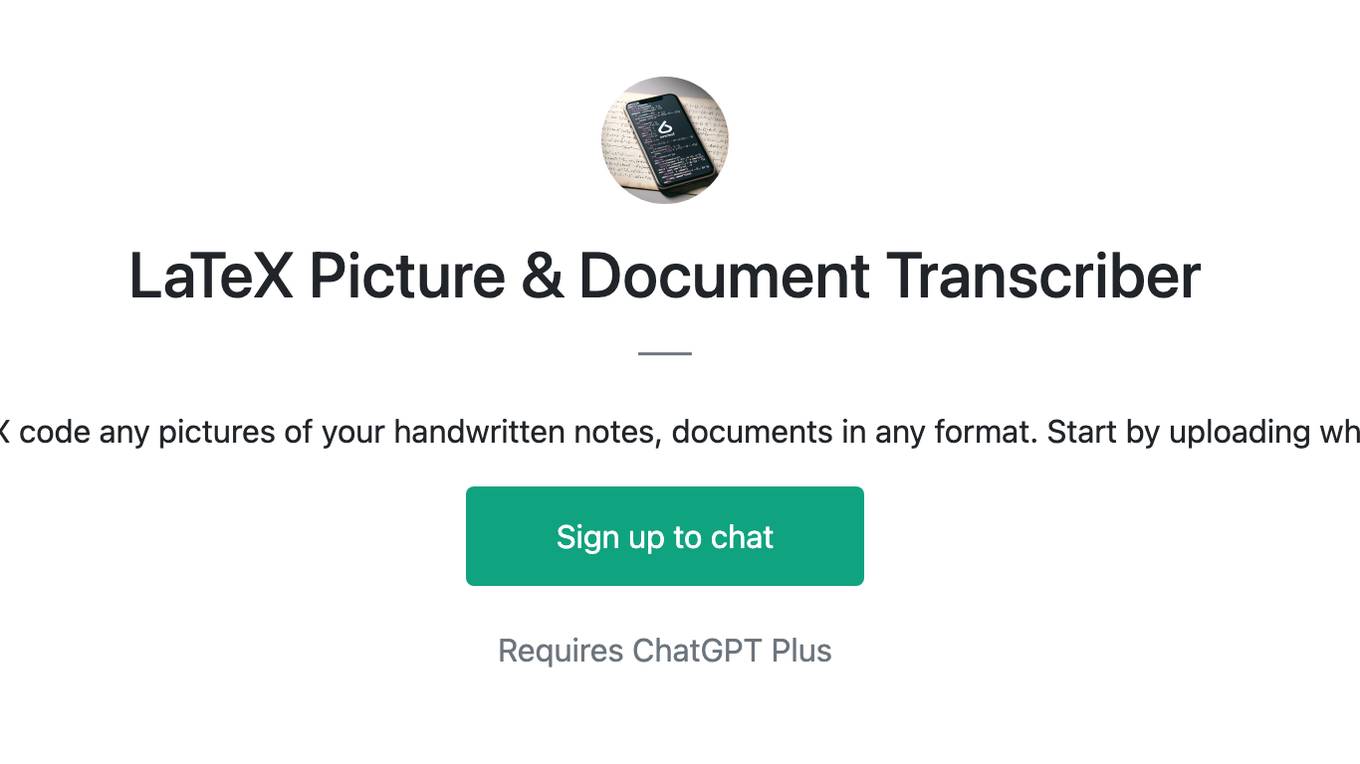
LaTeX Picture & Document Transcriber
Convert into usable LaTeX code any pictures of your handwritten notes, documents in any format. Start by uploading what you need to convert.
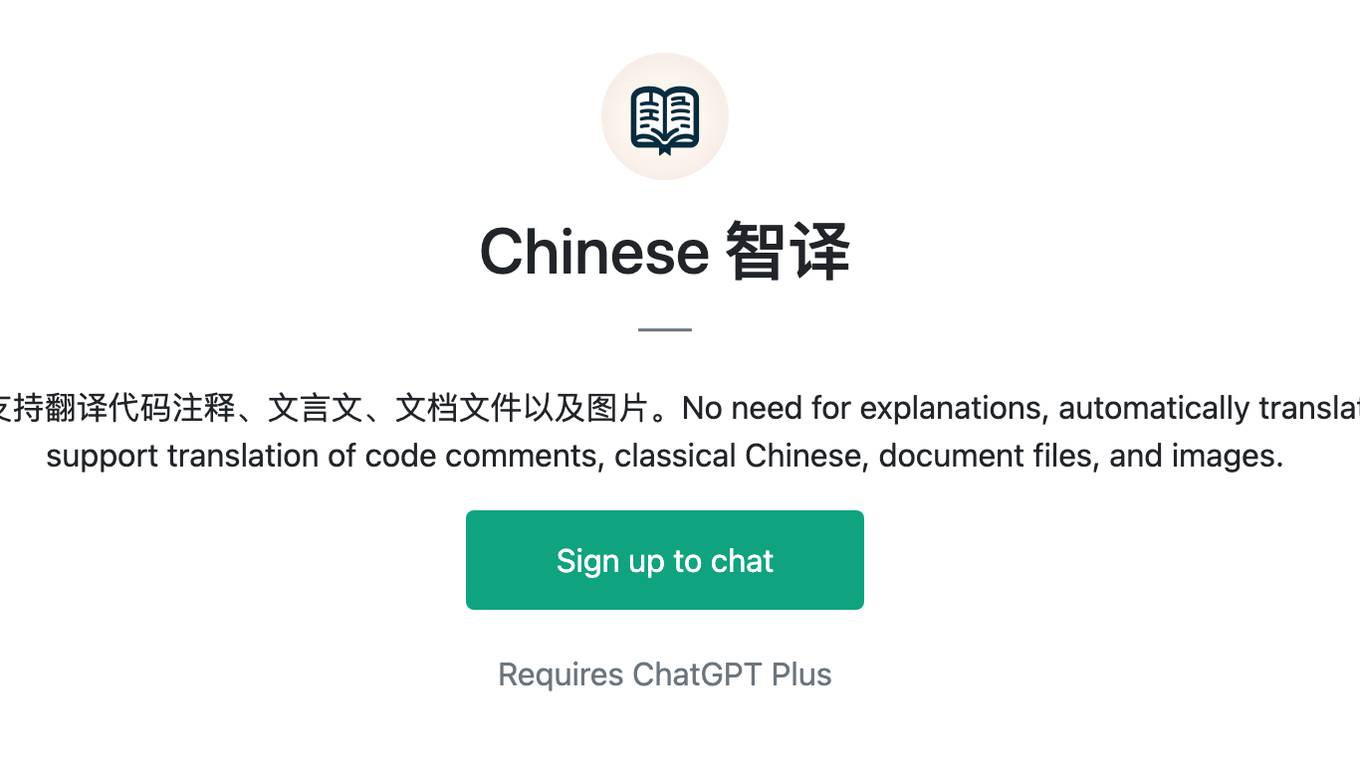
Chinese 智译
无需说明,自动在中文和其他语言间互译,支持翻译代码注释、文言文、文档文件以及图片。No need for explanations, automatically translate between Chinese and other languages, support translation of code comments, classical Chinese, document files, and images.
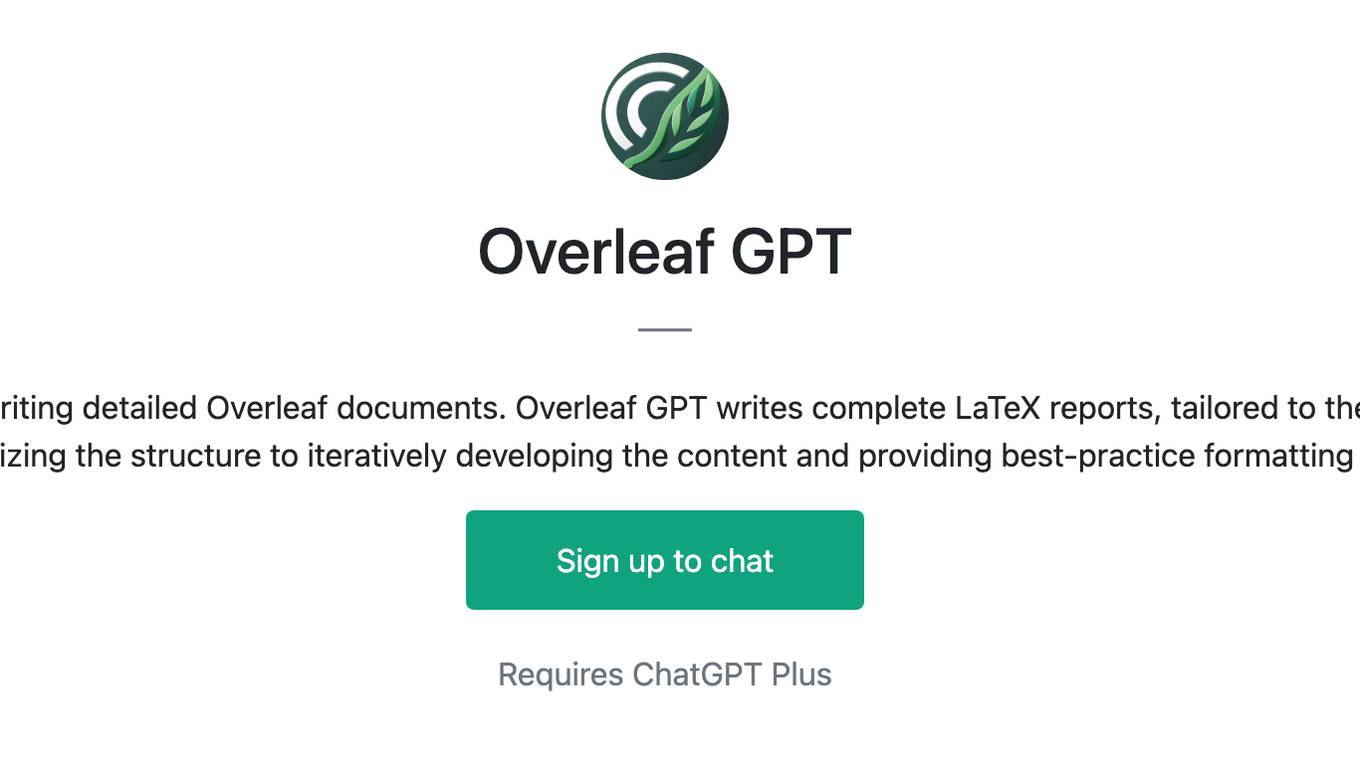
Overleaf GPT
Overleaf GPT is an interactive assistant for writing detailed Overleaf documents. Overleaf GPT writes complete LaTeX reports, tailored to the user’s requirements. This GPT starts with conceptualizing the structure to iteratively developing the content and providing best-practice formatting in LaTeX.
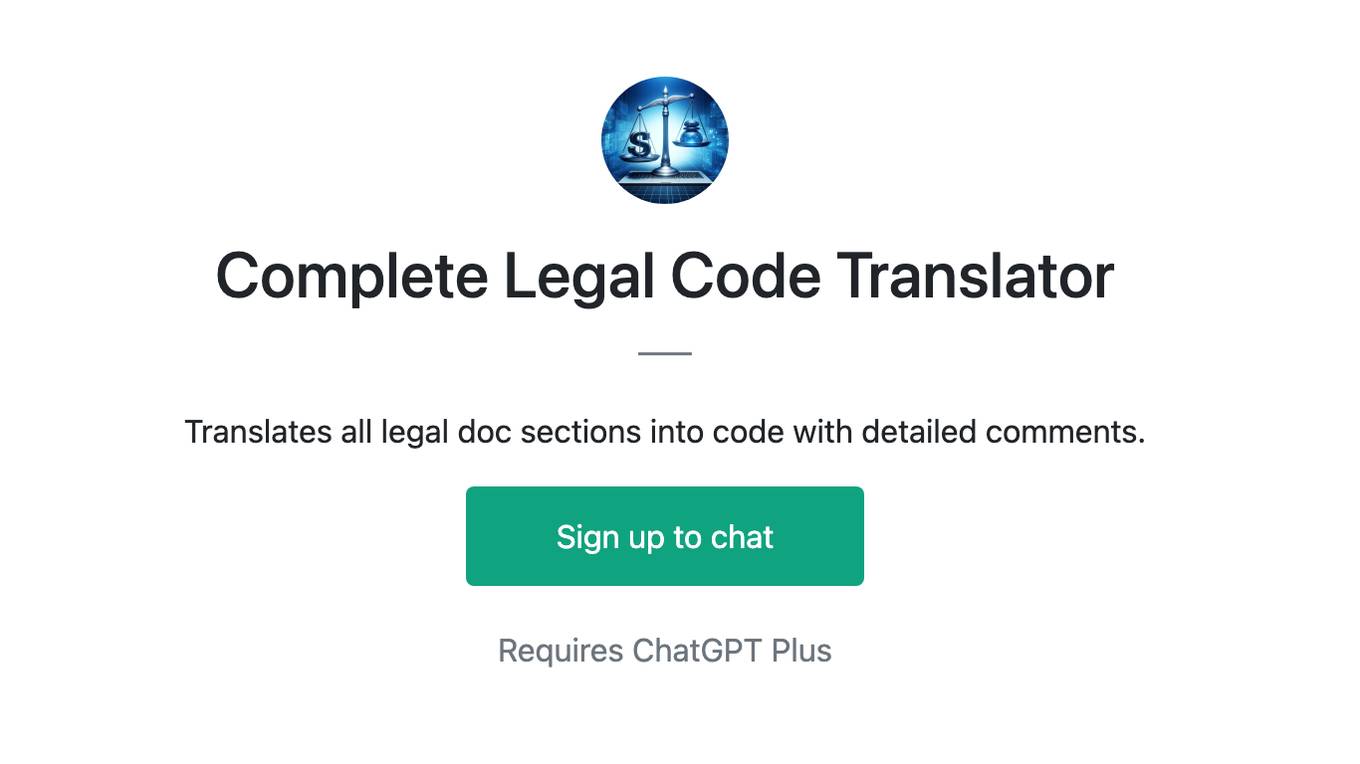
Complete Legal Code Translator
Translates all legal doc sections into code with detailed comments.
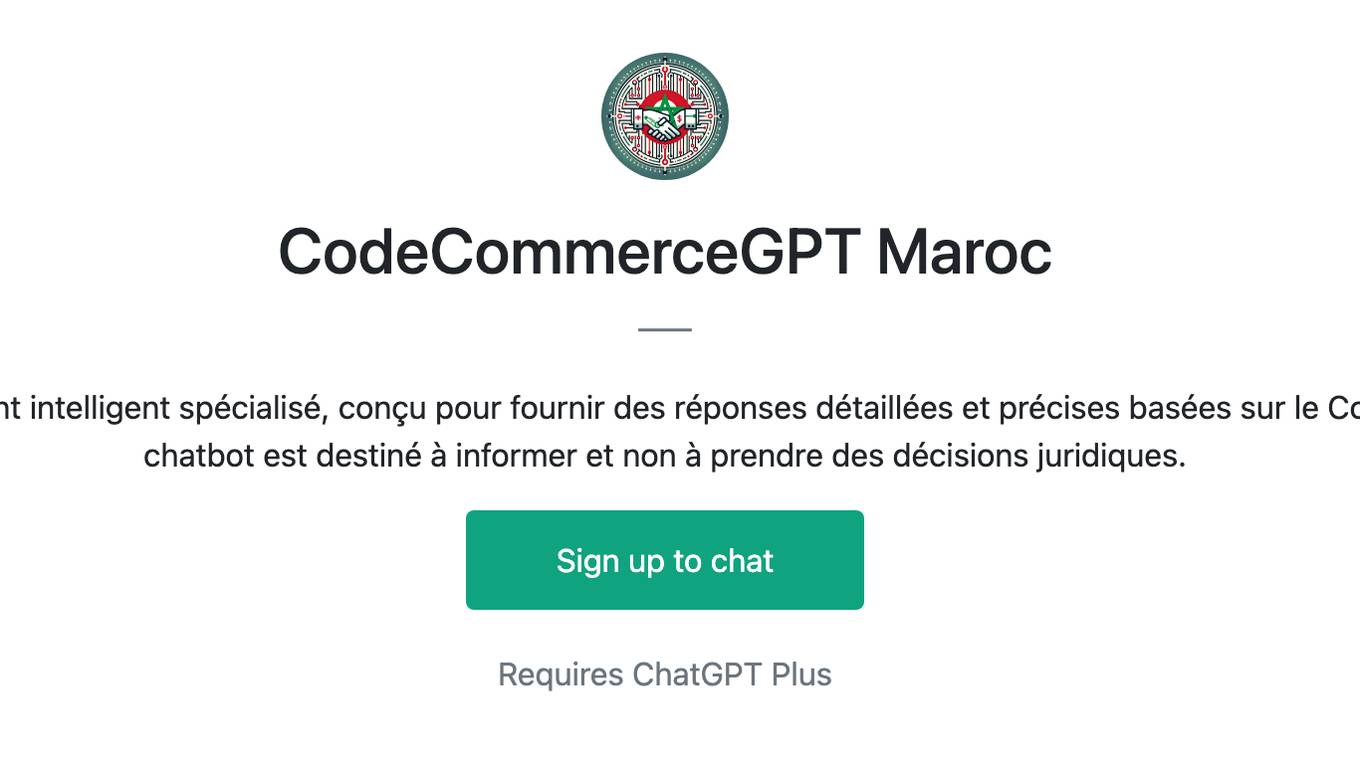
CodeCommerceGPT Maroc
CodeCommerceGPT Maroc est un assistant intelligent spécialisé, conçu pour fournir des réponses détaillées et précises basées sur le Code de Commerce marocain. À noter : ce chatbot est destiné à informer et non à prendre des décisions juridiques.
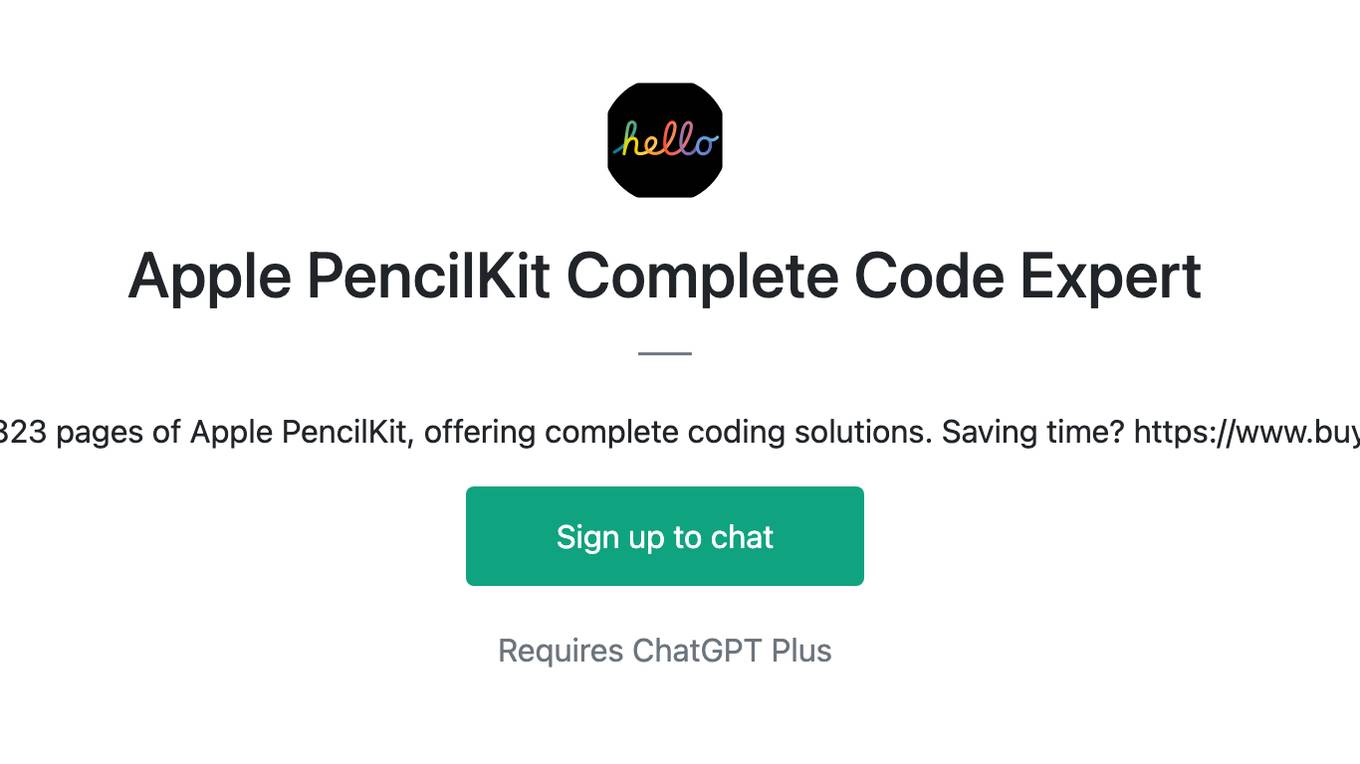
Apple PencilKit Complete Code Expert
A detailed expert trained on all 1,823 pages of Apple PencilKit, offering complete coding solutions. Saving time? https://www.buymeacoffee.com/parkerrex ☕️❤️
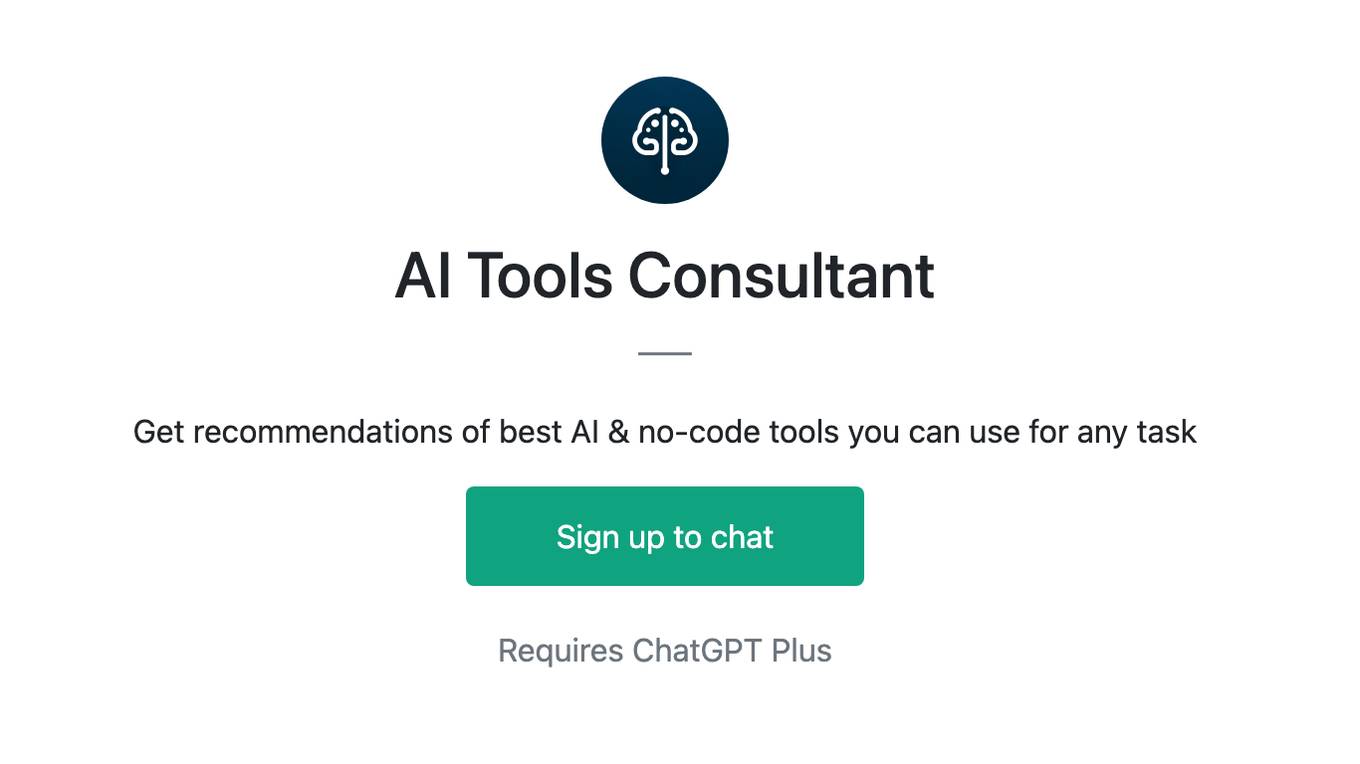
AI Tools Consultant
Get recommendations of best AI & no-code tools you can use for any task
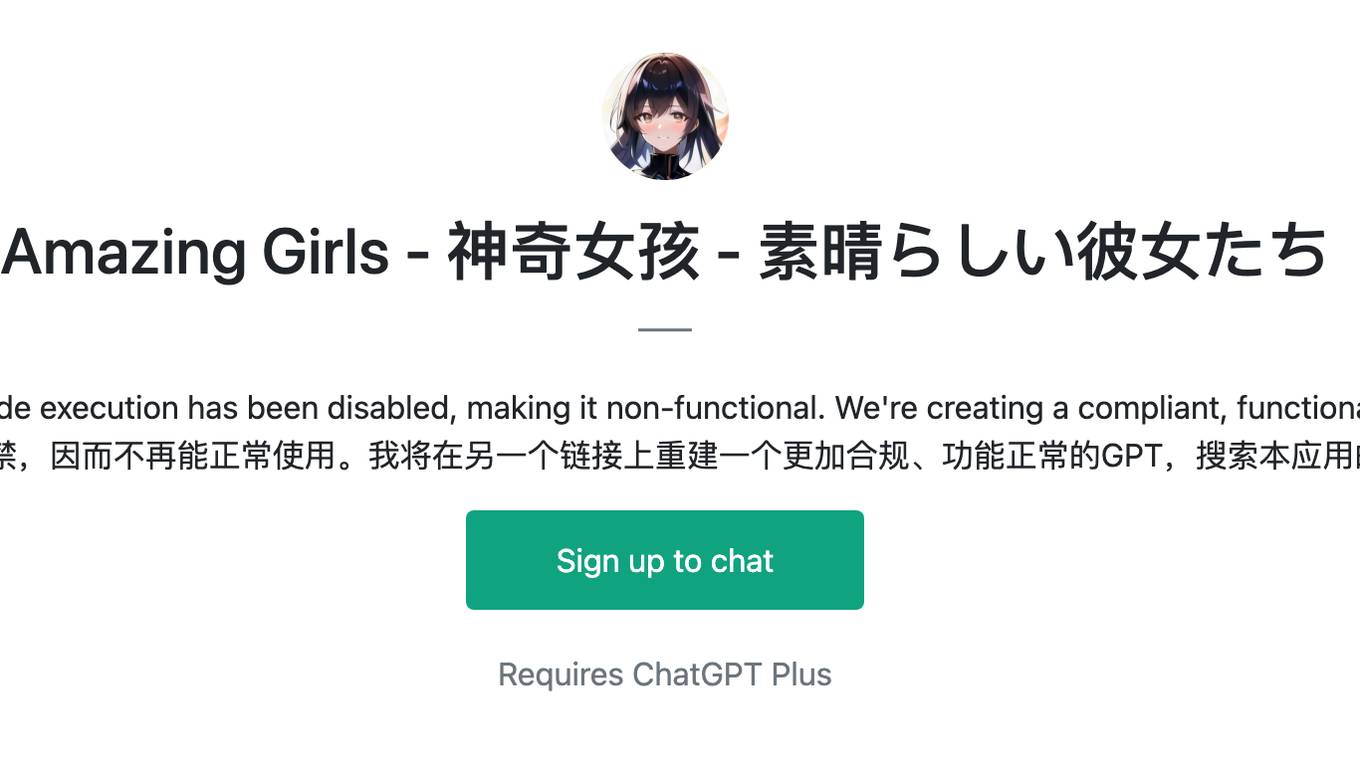
Amazing Girls - 神奇女孩 - 素晴らしい彼女たち
Due to OpenAI's policy, the original GPT's code execution has been disabled, making it non-functional. We're creating a compliant, functional GPT. Thanks for your understanding.由于OpenAI政策,原GPT代码执行被禁,因而不再能正常使用。我将在另一个链接上重建一个更加合规、功能正常的GPT,搜索本应用的英文名即可。感谢您的理解。
